#and so might have understandably have expected a more significant role (as in her second appearance)
Note
hi!! fanfic writing person here again :D
i've been looking at a ton of stuff and first like. damn i didn't expect me headcanoning a character as transfem to lead me down a rabbit hole where i now 1. have loads of random knowledge on transfem issues and 2. have a massive amount of respect for transfem people and understanding of the differences in experience of different trans people. wonderful actually. your stuff has been super helpful tysm
actual question! how do i go about using femininity as a marker of transition without falling into gender roles? do you think that's disrespectful? because like. wearing makeup, 'feminine' clothes, that kind of thing-- functionally no bearing on someone's womanhood. but those are, to my understanding, big hallmarks of transfem experiences. i don't want to say that wearing makeup or a dress makes her suddenly feel wonderful and pretty and solves all her woes, but i also don't want to downplay the significance of that experience. ideally, how do you think those should be balanced? basically how do i make her feminine without it seeming like a certain level of femininity is required to be trans.
generally, are there any experiences you think would be helpful to know? i'm writing a lot about her (currently two fics on different effects of HRT as an adult, and two on her gender being affirmed as a teen when she had taken basically no steps in her transition) so any insight is helpful. ideally what would you want portrayed in a non-transfem author writing a trans girl? idk!
i understand that these are very big asks so once again don't feel pressured to reply-- thank you regardless! generally looking at your content as a trans woman has been super helpful so thank you so much for sharing <3 best wishes!
"how do i go about using femininity as a marker of transition without falling into gender roles?"
you cant! but why do you need to? a core part of the trans experience is experimenting with gender, stereotypical or not. so many trans fems (including myself) start off by leaning very hard into stereotypical femininity because they are things that many of us have not previously explored. and then a core part of that journey is learning that there is no right way to explore gender. i spent years leaning into being femme until i realized i was more comfortable with a little bit of fluidity and androgyny. i think the most authentic experience would be to have her explore femininity, stereotypical or not, and then eventually coming to terms with how she is a woman outside of stereotypical femininity.
two experiences that i think might be a good way to introduce this concept is one, the gender affirming experience of being included as one of the girls. there's a lot of nuance to that experience that people dont necessarily consider. there is the self doubt of, oh am i really one of the girls or are they just humoring me? and also for some there is the need to feel like they need to confirm to expectations of femininity, and leaning too hard into it.
second, the experience of experiencing misogny for the first time. i specifically say misogny because a lot of trans women have face homophobia and transphobia before they experience misogyny that validates them as a woman and for many people there can be this sudden awareness of how different the world is when you move through it as a woman. there is your typical run of the mill, this guy is a dick misogny but then there is also that experience of facing internalized misogny from other women. the experience of being told by cis women how to engage with femininity because a lot of cis women haven't deconstructed that for themselves is an experience that can be particularly hurtful because it is infantilization and misogny that is also incredibly invalidating.
third, when youre talking about gender affirming experiences from pre-transition, there's a lot of nuance to those experience because while they are gender affirming, there is confliction too. for some theres the question of why do i like this? and you also have to consider that many times those experiences that happen to a person who sees themselves as a boy. there is a level of separation from the experience because they havent necessarily embraced transness yet, and if they have, theres tentativeness because being in your teens is all about forming identity.
if you can capture these experiences in your writing, then fantastic! but also these are hard to capture because often times it takes lived experience to write it with nuance.
love these questions and happy to answer! good luck with your writing!
41 notes
·
View notes
Text
"Minkowski's been talking about Sondheim again…": Minkowski's love of musical theatre and what it reveals about her characterisation and her relationships
TL;DR: Renée Minkowski's love of musicals, while it might seem just like a mundane character detail, is used to give depth to her character because it contrasts with expectations of her from both the listening audience and the other characters. Her willingness or unwillingness to share this interest in different circumstances reveals her relationships with other characters at various points.
Since this is a long one, if you'd rather read it as a document, you can view it here: Google Doc version.
"She actually really cares about these talent shows": Episode 8 (Box 953)
In the early episodes of Season 1, Minkowski is presented (largely through Eiffel's unreliable perspective) purely as a strict no-nonsense authority figure without much emotional depth, the kind of person who only likes things that are useful, purposeful, or mandated by Command. In contrast, musical theatre is a creative pursuit that has nothing to do with the mission of the Hephaestus and is viewed by many people as fairly frivolous or silly. The gradual exploration of Minkowski's passion for musicals is one of the many ways that the show expands and challenges our understanding of her as a character.
The first indication that we get of her interest in musicals is through her entry into the infamous talent show, something that is required as part of the mission. Minkowski really cares about 'crew morale' activities in general, even when they actually have a negative effect on morale and even before she's friends with any of her crew (for example, the Christmas and Thanksgiving dinners in the earlier stage of the mission), perhaps partly because doing things in the "right way" is important to her.
But Eiffel senses that the talent shows aren't just about rules for her: "it’s bad enough when she makes us do something just because it’s military protocol, but I think that she actually really cares about these talent shows". This might be the first indication that we get of Minkowski caring deeply about anything that isn't inherently part of her role as a Commander. Moments like this are part of the gradual process of giving us insight into her character beyond the Commander archetype that she tries to embody. And yet, she only indulges her theatrical passion because something mandatory gives her permission, or an excuse, to let another part of herself out.
Of course, to satisfy the needs of a talent show, she'd only need to provide a performance of a few minutes. But Eiffel mentions "the second act of the play" - which along with Hera's comment that "Isabel isn't the biggest role in the play" - implies that Minkowski was intending to put on the whole of Pirates of Penzance as her talent show act, rather than a few of the songs or some kind of medley. (I suppose that Eiffel could be exaggerating or Minkowski might have been planning to do extracts from different parts of the play, but I prefer the interpretation in which Minkowski gets to be more ridiculous.)
Even though no one else would be willing to be in her production of Pirates of Penzance, Minkowski casts Hera as Isabel, a role with two lines and no solo singing. I found some audition notes for this play which said "The traditional staging gives [Isabel] more prominence than the solo opportunities of the part suggest, so she must be a good actress" which does make me sad in relation to Hera's inability to have a more significant role by being physically present on stage.
It’s sweet that Hera still wants to take part though. She tells Eiffel "Pirates of Penzance is a classic of 19th century comic opera", so either she’s absorbed what Minkowski has told her about the show, or she’s done her own research and formed her own opinions. I enjoy the fact that Hera is the one Hephaestus crew member who shows potential to share Minkowski's musical theatre appreciation; I like to think that this is something they could explore together post-canon.
Anyway, I'm obsessed with the idea that Minkowski was planning to play every character except one in Pirates of Penzance, a show which is designed to have 10 principal characters and a chorus of 14 men. It seems that her contribution to the talent show was supposed to be an entire two-hour two-act musical, with costumes and props, in which she would play almost all of the parts. This is very funny to me as the perhaps predictable consequence of giving an ambitious and frustrated grown-up theatre kid a position of authority and asking them to arrange a talent show. Minkowski knows that the audience will be made up of her subordinates who are theoretically obliged by the chain of command to watch and listen, so she absolutely tries to make the most of that opportunity. There's probably also a degree to which she limits other people's involvement in her musical because - as with her other endeavors - she wants the outcome to be almost entirely within her control (something that is usually pretty much impossible in as collaborative a medium as musical theatre).
Of course, Minkowski's behaviour in most of the talent show episode is affected by her being drugged by Hilbert. This creates an exaggerated situation which is the first real opportunity for Minkowski to be something other than the strict sensible authoritarian Commander and the foil to Eiffel's jokey laid-back attitude. I don't agree with ideas that being intoxicated brings out anyone's true self (especially in the absence of consent for the intoxication), but it seems pretty clear that being under the influence of whatever was in Hilbert's concoction caused Minkowski to fully commit to a level of manic enthusiasm for her musical production that might have otherwise been obscured by her professionalism. It's a particular kind of person who belts showtunes when drunk, and Minkowski is that kind of person, even if that's not how she wants to present herself. (As a sidenote, I seem to remember that they took Emma Sherr-Ziarko's script off her to help her sound more drunk. It's an excellent performance.)
Minkowski wants interval ice cream. She wants "pirate costumes" (and she'll threaten to shoot a man to get them). She wants "swashes and buckles". She wants whatever props she can get her hands on (including a real cannon). This show is important to her, even though only three other people will witness it and two of them actively don't want to be there. It’s important to her for its own sake.
Eiffel says Minkowski wants "a second pair of eyes to tell her if the prop sabre for her Major-General costume was a bit much…" While I certainly wouldn't put it past Goddard Futuristics to have a prop sabre on the station for no apparent reason, it feels more likely that she might have made it or adapted some existing item. Which suggests that maybe she was that passionate about the props even before Hilbert drugged her.
Even so, it does feel significant that Minkowski's love of musicals is only revealed in the episode in which she is drugged, exhibiting lowered inhibitions, exaggerated behaviour, and an "impaired euphoric effect". Her love of musical theatre is initially revealed through a professional structure that provides permission, and then further emphasised by a forced intoxication that exaggerates some impulses that perhaps she already had.
"Some hobbies other than making trains run on time": Episode 17 (Bach to the Future)
After Eiffel tells to find Minkowski to find something else to do while her work duties have quietened down, they have the following exchange:
EIFFEL: You must have some hobbies other than making trains run on time. Something to do with friends? Boyfriends?
MINKOWSKI: Of course I do, but, well, there aren't really a lot of opportunities for rock climbing or trail hiking in the immediate vicinity.
Even though this quote doesn't mention musicals, I've included it here for two reasons. Firstly, it's very funny to me that, even after the talent show debacle, Eiffel acts like he's never had any evidence of Minkowski's hobbies. She tried to perform a whole play almost single-handedly and it didn't occur to him that this might indicate an interest of hers outside of work. I think this reflects the fairly two-dimensional view that Eiffel has previously had of Minkowski, which her interest in musical theatre didn't fit into.
Secondly, it feels notable that Minkowski doesn't mention musical theatre here. She wants to show that she has non-work interests, but without undermining her own authoritative image. Her interest in rock climbing and trail hiking - while it may be genuine - fits with how she wants to be seen as a Commander. These are hobbies which portray her as physically capable, with a high degree of stamina and a willingness to adapt to perhaps less hospitable surroundings. Of course, Minkowski does have these traits and they serve her well on the Hephaestus. But there's not really anything particularly surprising about her expressing these interests. The surprise in this scene comes from the reveal that she has a husband, a character detail which - like her love of musicals - isn't something we'd necessarily expect from the archetype-based view of her we are initially presented with.
Her interest in rock climbing and trail hiking never come up again, because these details don't really deepen her characterisation (or at least, they aren't really used to deepen her characterisation beyond proving that she isn't entirely all-work-and-no-play). In contrast, Minkowski's love of musicals is brought up over and over because it shows another side of her that she struggles to reveal on the Hephaestus, and that allows more interesting things to be done with her characterisation.
"You wanted to write showtunes": Episode 35 (Need to Know)
Alongside the more high stakes discoveries prompted by the leak from Kepler's files, we also learn that Minkowski applied to - and was rejected from - the Tisch Graduate Musical Theater Writing Program.
Up until this point, we've only had evidence that Minkowski enjoys performing in musicals. But here we learn that Minkowski doesn't just love watching or performing in musicals - she wanted to write them too. This suggests a creative side to her that we never see her fully express.
The course
The Tisch Graduate Musical Theatre Writing Program claims to be the only course of its kind in the world and it accepts just 30 students each year. The current application process requires applicants to: upload play scripts or recordings of songs they've written; answer a large number of extended response questions about their creative process and views on musical theatre; write a 'statement of purpose' which has to talk about why they are applying and include 3 original ideas for musicals; provide a professional resume and a digital portfolio; complete an exercise of writing in response to a prompt; and undergo an interview. The process might have changed somewhat since Minkowski would have been applying (which, if it was soon after she finished college, might have been around the early 2000s) or it might be different in Wolf 359's alternate universe, but I think we can safely assume that applying to this course was a serious undertaking that required an intense amount of commitment and work.
Applying to a course like that isn't something you do half-heartedly or on a whim. You couldn't apply to this course if you hadn't done a fair amount of musical theatre writing already. (The course requires applicants to choose to apply as bookwriters, lyricists, or composers, but I'm not going to make a guess here as to which of these Minkowski went for.) The fact that Minkowski wanted to study this course suggests that she was seriously considering trying to make a career out of musical theatre writing. In Once In A Lifetime, she tells Cutter that commanding a space station has always been her dream job, but we've got evidence here that it wasn't her only dream job. There's something kind of funny and kind of sad about the idea that writing musicals was her back-up / fall-back career path. She does not like to make life easy for herself.
The revelation
This information is revealed against Minkowski's will. It's not something she wanted people to find out, and she isn't happy about them knowing:
JACOBI: "Dear Renée, thank you for your interest in the Tisch Graduate Musical Theater Writing Program..."
MINKOWSKI: Oh, come on!
JACOBI: (pressing on) "We are sorry to say, we will not be able to offer you a spot in this year's blah blah blah." Oh this is too good. You wanted to write showtunes?
MINKOWSKI: Number one? Shut up. Number two, why are my personal records on there?! [...] How is it in any way relevant?!
JACOBI: Oh, I think it's very relevant. I mean, if you're sending someone to pilot ships in deep space, you want to make sure that they can, you know... paint with all the colors of the wind.
Jacobi CRACKS UP - and, although to a lesser degree, so does Lovelace. Minkowski looks at her: really?
LOVELACE: Sorry, Minkowski. It's... it's a little funny.
MINKOWKSI: No, it isn't!
Minkowski seems defensive and embarrassed here. She obviously doesn't trust everyone there with this revelation (Jacobi, Maxwell, Lovelace, and Hera are all present). She considers this information to be "personal" and irrelevant and not even "a little funny". She's used to reactions like Jacobi's (and to a lesser extent Lovelace's); in Ep41 Memoria, she says "most people think it's hilarious that I like musicals" (see below for more thoughts about this quote). But the fact that these mocking reactions are expected doesn't mean that they don't bother her. She wants so badly to be taken seriously and, in this scene, her interest in musical theatre seems to be incompatible with that. Jacobi reacts the way that he does because of the idea that I've already expressed, that a passion for musical theatre does not fit with the serious authoritative image that Minkowski has often presented. It's not the typical hobby of a soldier, especially not a Commander.
To me, the way Lovelace laughs suggests that she might not have previously known about Minkowski's love of musicals, or at least perhaps not the full extent of it. At any rate, it's definitely news to Jacobi. And Minkowski clearly hasn't talked about it enough for it not to feel like a big reveal for her.
The rejection
It's notable that this reveal is not just that she wanted to write for the stage, but also that she failed to get into a course that might have helped her work towards that goal. This of course compounds Minkowski's discomfort at having this information revealed. Not only did she want to write showtunes, but she encountered rejection in her attempts to do so. This detail implies that perhaps it wasn't just the appeal of her spacefaring dream that stopped her going down a theatrical career path.
I'm about to move more into headcanon territory rather than just straightforward analysis, but I personally believe that, while Minkowski auditioned for a lot of musicals (particularly as a child / young person), she was never cast as the main role. She seems embarrassed about her interest in musical theatre in a way that (at least judging by people I've encountered) people who were always the lead in their school / college productions don't tend to be.
We don't have much evidence about her actual level of singing/acting ability, given that she is inebriated during the only time we hear her sing in the podcast. However, it resonates with other aspects of her characterisation to imagine that Minkowski was generally good enough to get an ensemble part but never quite good enough to be cast as a main part. I think she might see only ever being cast as part of the ensemble, and failing to get into the Tisch Musical Theatre Writing programme, as slightly more down-to-earth examples of the same pattern as her repeated rejections from NASA. She is desperate to prove herself. She is "someone who very much wants to matter. To do something important." When she casts herself as almost every part in Pirates of Penzance, she is finally taking the opportunity to be a main character, an opportunity which I imagine had been denied to her over and over in both a literal and metaphorical sense.
"It's just from a play I saw once": Episode 41 (Memoria)
The next scene I want to talk about is from a memory of Hera's, which took place on Day 57 of the Hephaestus mission and in which Minkowski appears to be talking about the Stephen Sondheim musical Sunday in the Park with George:
MINKOWSKI: Oh, it's just from a play I saw once. It doesn't matter. (BEAT) The guy who sings it is this famous French painter. And his entire life is kinda falling apart. But he can always turn what's happening around him into these beautiful paintings.
HERA: And?
MINKOWSKI: And... That's, I don't know. Reassuring, maybe? (BEAT) I don't know why I'm going on about this. You don't care.
HERA: I think it's interesting.
MINKOWSKI: Yeah? Most people think it's hilarious that I like musicals.
HERA: I don't see what's funny about it.
MINKOWSKI: Well, thank you Hera, but you're not exactly... you know.
HERA: I'm not... what?
There's a couple of different things I want to pick out from this exchange. Firstly, the line "Most people think it's hilarious that I like musicals" makes me sad. I don't think she's talking about people on the Hephaestus there. Judging by the quote I talked about from Bach to the Future, Eiffel definitely wouldn't have registered Minkowski's love of musicals at this stage, and I doubt Hilbert cares at all about the hobbies of his fellow crew members. So Minkowski is talking about experiences that she's had on Earth, of people mocking her interest in musicals and thinking it doesn't fit with who she is. You can hear the impact of those experiences in Minkowski's reluctance to elaborate, in the way she says that something she obviously cares about doesn't matter, in her assumption that Hera doesn't care.
Secondly, this scene is a complicated one for Minkowski and Hera's relationship. On the one hand, Minkowski freely talks to Hera about something she's passionate about, and Hera listens and expresses interest. Hera validates Minkowski's interest in musical theatre without making a thing of it being weird and Minkowski thanks her. Again, it’s shown as an interest they could could potentially share.
But on the other hand, it seems like part of the reason Minkowski feels able to open up to Hera is because at this point Minkowski doesn't see opening up to Hera as fully equivalent to opening up to a fellow human. She doesn't just accept Hera not making fun of her interest; instead it seems Minkowski is about to imply that this lack of judgment indicates Hera's difference from humans (although she does have the decency not to say it outright). Minkowski's expectation of judgment from others contributes to her saying something very hurtful to Hera here. (This kind of potential consequence of negative self-attitude is explored a lot with Eiffel, so it's interesting that Minkowski can sometimes have a similar issue.)
Minkowski and Hera's conversation is interrupted when:
The DOOR OPENS.
EIFFEL: Hey, Minkowski, we've - What are you guys talking about?
MINKOWSKI: We were just discussing how I'm going to take away your hot water privileges if you don't reset the long-range scan.
Eiffel can obviously tell that he's walked in on a conversation that is about something other than work, or he wouldn't have asked. But Minkowski actively chooses not to tell him that she was talking to Hera about musicals. Perhaps she doesn't know how to open up to a human subordinate about it. Perhaps she doesn't trust him not to make fun of her. Perhaps she just doesn't have any impulse to talk about her interests with him. Either way, if Minkowski's love of musicals is something which reflects a side of her personality outside of her Commander role, this is a moment where she chooses not to take an opportunity to share that side of herself with Eiffel. This reflects the emotional distance between them three months into the mission, which forms a nice contrast with the next couple of quotes I'm going to talk about.
"Composition. Balance. Harmony.": Episode 54 (The Watchtower)
When Eiffel comes directly face to face with alien life, he discovers that music is the human invention that fascinates the Dear Listeners:
EIFFEL: You haven't figured out music?
BOB: ORDER. DESIGN. TENSION. COMPOSITION. BALANCE. HARMONY.
EIFFEL: (low, to himself) Minkowski's been talking about Sondheim again…
I only learned in the course of writing this post that in this moment the Dear Listeners are almost exactly quoting a repeated phrase used throughout Sunday in the Park with George. The titular protagonist lists various combinations of these qualities in multiple songs in reference to his art. In the closing song, the lyrics are "Order. Design. Tension. Composition. Balance. Light. [...] Harmony." It's not only Eiffel's references that the Dear Listeners are incorporating into their speech - they've picked this one up from Minkowski. This also suggests that some element of her appreciation for musicals and the way she talks about them has fed into the Dear Listeners' understanding of the human phenomenon of music. The Dear Listeners aren't just parroting - they understood the quote enough that they left out the word "light", arguably the only quality in that phrase which isn't a big part of music as well as visual art. Eiffel likes music too, but I don't think that this is how he'd talk about his favourite songs.
This is a refrain about finding order and beauty out of the chaos and uncertainty of life, which was also the aspect of Sunday in the Park with George that Minkowski focused on when talking about it in Memoria. It suggests that art/music could be something governed by rules and principles, which is potentially something that appeals both to Minkowski and to the Dear Listeners.
Eiffel's response to this reference is one of those little hints that reminds us that Eiffel and Minkowski have spent a lot of time together and that not all of that time has involved them being at each others' throats or actively in a life-or-death situation. Some of it has just been Minkowski going on about a musical she loves and Eiffel (willingly or not) paying enough attention that he recognises this phrase as a Sondheim quote that Minkowski has talked about. I suppose that this quote might have been in Eiffel's pop-culture-brain anyway, but judging from Eiffel's general tastes and the fact that I don't think Sunday in the Park with George is one of the more commonly known Sondheim musicals among non-musical fans, it seems more likely that this quote is something he only knows because Minkowski has talked about it.
Eiffel sounds exasperated at the mention, like he's heard Minkowski talk about Sondheim far too much. But I'd argue that this still says something positive about their relationship, when we contrast it with a couple of other moments I've already mentioned. Firstly, when her previous musical theatre ambitions are revealed to Jacobi, Maxwell, and Lovelace in Need to Know, Minkowski seems embarrassed and defensive. Secondly, in the memory from Memoria, she avoids telling Eiffel that she was talking about this same musical. Yet, by the time The Watchtower takes place, Eiffel is sick of hearing Minkowski talk about Sondheim. She doesn't have the same barriers up in sharing her interests with him, even though he doesn't have the same interests. I think this is a demonstration of how comfortable she feels with him. It's a hint at the kind of easy downtime that they've sometimes shared.
"One day more": Episode 61 (Brave New World)
Eiffel recognises another musical reference of Minkowski’s in the finale. As the crew are preparing for their final confrontation with Cutter and co., Minkowski quotes Les Misérables, mostly to herself - but Eiffel recognises the lyrics and joins in:
EIFFEL: Hey - chin up, soldier. We're almost through. Just one more day, and then we're done.
MINKOWSKI: Yeah, one more day. (more to herself) The time is now, the place is here - one day more.
EIFFEL: - one day more.
They both stop, dead in their tracks.
MINKOWSKI: Did you just - ?
EIFFEL: Was that what I - ?
They look at each other: No way. And BURST INTO LAUGHTER.
EIFFEL: Man... this is really it, huh? The end of everything.
It feels really important that Minkowski and Eiffel share this moment of togetherness before she tries to send him back to Earth and before the rest of the action goes down. I think there’s some nice symbolism about them finding a way to communicate that they both understand. Making references is Eiffel's thing, and musicals are Minkowski's thing, so this is a synthesis of their two approaches. Again, there's a contrast with Minkowski's previous unwillingness to share her musical theatre passions with Eiffel (at least without the mitigating circumstances of a mandatory talent show and some kind of intoxicating substance).
I talked about the significance of the fact that they reference this particular musical in this post from ages ago. I don't think it's too much of a spoiler for Les Misérables to say that the revolution that the song One Day More is building up to does not end well for the revolutionaries. When Eiffel says "Just one more day, and then we're done", it encompasses both the possibility that the crew will escape to travel back to Earth and the possibility that they will all die. Minkowski's reference to a famously tragic musical suggests that it's the latter possibility that's at the forefront of her mind (right before she tries to send Eiffel away from the danger). But Les Misérables is also a story about people standing together in solidarity against powerful oppressive forces, which gives particular resonance to the way that this reference brings Eiffel and Minkowski together in a moment of being completely on the same wavelength as they prepare to fight Cutter and Pryce's plan.
When they laugh here, it's not about the 'hilariousness' of Minkowski's interest in musicals, it's about their unexpected unison - Eiffel's recognition of Minkowski's reference and Minkowski's surprise at the fact he joined in. It's a laugh of togetherness, of shared understanding, of friendship. It's a moment of lightness in dark times. And that moment is provided by Minkowski's pop culture interests, not Eiffel's. In spite of all they've been through, she's not lost that part of herself, and in fact, she's more open about it, at least to Eiffel.
I'll finish by highlighting what Eiffel says when he's trying to get into character to impersonate Minkowski so he can turn the Sol around:
EIFFEL: Umm... yes, this is Lieutenant Commander Renée Minkowski. I'm... uh... well I sure love schedules, and, uh, musicals. And that man, who I married…
I just think this is a nice example of Eiffel not defining Minkowski solely by her professional Commander role. Sure, she likes schedules (probably in a personal as well a professional capacity to be fair), but she also loves musicals, and her husband. It is a fairly reductive overview of her as a person, but it feels reductive in a fond way, like these things are part of Minkowski's brand to Eiffel in a way that he might affectionately tease her about. (Credit to @commsroom for this thought.) His view of Minkowski has come a long way from "our resident Statsi agent" or even just "you must have some hobbies other than making trains run on time." He doesn't see any contradiction or inherent humour in Lieutenant Commander Renée Minkowski's appreciation of musicals.
Conclusion
Minkowski's love of musical theatre is used to deepen her characterisation and is one of the ways in which we gradually begin to see her complexity beyond the strict Commander archetype. The degree to which she is prepared to share this interest at various points is used to illustrate the nature of her relationships with other characters: a general unwillingness to show a less serious side of herself; a complicated potential shared interest with Hera; and the growing understanding between her and Eiffel.
If you read this whole thing, well done / thank you 😄 It wasn't meant to be this long - it just happened… Feel free to share your thoughts!
#It's Minkowski Essay Time again!#This is over 4700 words and still doesn't cover it all...#I hadn't quite realised there was so much to say!#Wolf 359#w359#If anyone is more familiar with 'Sunday in the Park with George' and has thoughts on why it might particularly appeal to Minkowski#I'd be interested to hear#I listened to the soundtrack and read the Wikipedia plot summary#but I don't think I really got it#My other significant bit of research was that#in order to see what applying to the Tisch Graduate Musical Theatre Writing Program involves#I had to create an account as if I was actually applying#which might be the oddest thing I've done for character analysis#If it interests anyone I could do a post with more detail about that application process#cos it looks insanely intense#Renée Minkowski#Renee Minkowski#the empty man posteth#I hope no one takes things I have said here as critical of musical theatre people btw#I'm just talking about general perceptions#In general I do enjoy musicals myself from an audience perspective
196 notes
·
View notes
Note
Heya hey mother pookie🩷 So here’s my thoughts.
Can’t stress this enough and will keep on saying it that Lebron is just…

It’s sad u know? just… sad! Idk how to explain but it’s sad that’s not pity. The closest word I can think of is pathetic. She’s pathetic but not to the point I feel sorry for her.
Honestly, if she wasn’t a bit cray2, delusional, obsessive, manipulative, a pick me, I would’ve actually feel bad for her but then she’s not
She’s a whole red flag and if Buckybaby doesn’t see that in the future, RIP his eyes and sanity but as said by Mother Pookie before, this Bucky is better and so I have faith in him. It’s just that his action might be later on than now bcs he always thought of Lebron as his friend only. Before he never been interested so hard in a dame before but now that he’s actually starting to fall in love with Major, he’s going to notice her delusionalism (this word doesn’t exist btw)
Btw Leechoney… what do you expect😭😫 Like… what? Ofc he’s going to lie to you bcs of your attitude. She’s acting as if Bucky is her boyfriend (i bet in her mind she thinks that). She’s going to confront Bucky the next day I tell ya. She’s not the type to back down too. I can imagine the shrill of her voice right now and it’s making me cringe. I bet she gunna stomp her feet like a child demanding Buckybaby to explain why he lie to her and who’s he with. She’s the type to use the ‘but I’m your bestfriend’ reason too, which is hella annoying. I couldn’t help but roll my eyes so hard it refuse to come back down, but it had too bcs I need to read the upcoming part.
Personally, it’s fun to read Lenovo’s POV. Imagine if Jade had one?! That would be cruel yet interesting😂 Reading the antagonist view has a different vibe because there will be a time where we don’t understand why they’re acting the way they are and in a sense of way, we’re psychologically interpreting/discussing their behaviour which is fun. I lurve it!!
Lastly, as usual, great writing, Happy mother’s day to your mama Pookie and others as well andd ofcc as usual, love you Mother Pookie🩷🩷🩷
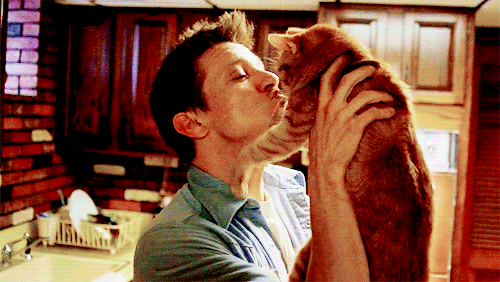
PS// One of my cat is sick rn. Please pray that he’ll be better tomorrow (He’s not meowing as usual, wobbly wobbly too, these past few days the weather has been unexpected, changing between heavy rains then scorching hot in seconds, and i hope it’s not affecting him. This is why we need an actual cat as a doctor, like a cat doctor, not human doctor just so they could take care of other cats ASAP)
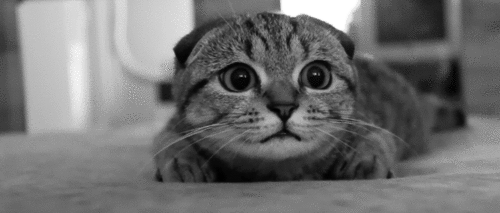
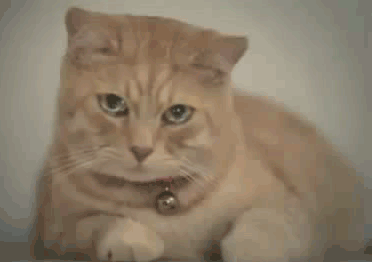
I feel like it's easy to put deLulu in the crazy bucket, but she's definitely motivated more by selfishness than by any kind of mental illness. She could have easily asked Bucky out at any point over the last four years. Who knows-- he might have said yes. She just kind of expected him to fall for her, so don't feel bad for her. She's been manipulating his relationships for a long time now.
She's definitely put Bucky in this quasi-boyfriend role, where she treats him like a bf and expects him to treat her like a gf, just minus the sexual/romantic element... for now (in her mind). She's used to being the only girl of significance in his life, and it's going to hit her hard when that changes. And it changes very, very soon.
Bucky will start seeing problems with the way she acts, but he won't necessarily put two and two together right away. Because, to him, the idea of a romantic relationship between him and her is just... so far out there. She is a friend; he's never, ever seen her as anything else. The idea has never crossed his mind. So, when trying to come up with motives for her behavior, jealousy will not be the first one to come to mind.
I think I would have been too terrified to have ever written a Jade POV. It would have been so scary in that head, lol.
8 notes
·
View notes
Note
My character is a 50 something police officer that suddenly finds herself in a post-apocalyptic world (think similar to Fallout), how would her training help her?
There's a little more complexity here than you might expect. Fallout alternates between three different settings, and I don't mean this in the normal, nerdy, “oh, but Fallout: Tactics, isn't canon, except for the Midwestern Brotherhood...” I mean it rotates across three different post-apocalyptic sub-genres. So, I'll dig those out in a minute.
The biggest thing is probably combat training. Even if they never had a combat specialist role (like a SWAT officer), they would still have undergone training in hand to hand, use of their baton, their sidearm, and a shotgun. They may have also been trained with various types of rifles. While it's not likely to be their most commonly used skill, it does open their options up a lot. It will also help them avoid some very bad situations. Sometimes, having a combat background is more about knowing when not to walk into someplace.
The second big boon is going to be their medical training. Even if they were just a patrol officer, they would still have undergone first aid and CPR certification on a fairly regular basis. Depending on their experiences, this might also give them a passing understanding of pharmacology (especially if they worked vice or dealt with ODs on a regular basis), and they may even be able to perform some rudimentary field surgery if there's no other option. (Granted, they also have a pretty good chance of killing their patient, but that's still better odds than the certainty of dying without any medical attention.)
The third major skill is their grasp of human nature. This is something that most veteran cops will build up over time, simply as a result of their human interactions. Now, this can result in a very jaundiced view of people, due their experiences, but this will make it harder to pull one over on them. (Now, there is a blind spot here, because your character is now in an unfamiliar world, their baseline is going to be a little bit scrambled. But, in general, they're going to have a significant advantage in reading people's behavior, and intentions.)
Depending on their background, they may have a lot of more specialized skills that could be extremely useful. Someone who worked in SWAT will have an extremely robust combat toolkit to work with, someone with a motor pool background will have an advantage in vehicle repair and maintenance (and while only two Fallout games have featured working cars, they're certainly a part of the setting.) A pilot would know how to operate a chopper (or vertibird.) Specific to Fallout, an officer with a background dealing with maintaining robotics would be able to do that, and might also have some skill with working on power armor. A hostage negotiator would have an almost frightening number of social options. A vice detective would have, likely, have a robust knowledge of pharmacology (as mentioned earlier), both in their symptoms, but also, likely, in their creation, and potential uses. Finally, detectives would still have their investigation skills, which could be very useful in their field. This is the usual, determining what happened at a location, tracking people, and so on.
So, why did I make a point about there being multiple versions of Fallout earlier? Because it affects how useful some of these skills are. Fallout, from its first incarnation, was a pastiche of an entire literary genre, which took heavy inspiration from multiple, not completely compatible, visions of a post-apocalyptic world.
The original game is bleak and subdued. You could almost think of it as a low-fantasy post-nuclear wasteland. Very little of the old world survives into the original game. It's also a world without a lot of the more fanciful elements that have become synonymous with the brand. Deathclaws are a ghost story told to frighten green caravan hands, not a massive apex predator understood to be wandering the wasteland. The super mutants are staying in hiding, while they carefully enact their master's plan. Ghouls are rare enough that most mistakenly describe them as the risen dead.
Within this context, a lot of the survival skills are likely to be the most important. Notably, there are a few cases where towns are run by their police. This is something that a veteran cop might have experience with. If they took on a leadership role, then it's quite possible they have a good background for starting, and protecting, a new settlement. Though, as the first game shows, this is an approach that can backfire horribly.
Fallout 2 and New Vegas represent a different, and more unusual, post-apocalyptic setting. These are worlds where the survivors are so separated from the end of the world that they're effectively building new civilizations. In Fallout 2, this includes a number of new, post-war cities, that have built up in the decades between the games.
These games also reflect an era when a lot of the mysteries of the wasteland have been exposed. Things like the ghouls, super mutants, and deathclaws are all known to exist, and the latter are acknowledged as serious threats.
In situations like this, some of the survival skills are less important, and it's possible your character could actually go back to doing their job, if they're living in one of the larger cities. It may seem a little counterintuitive, but these are settings where, to some extent, life goes on like it did before. With some changes along the way.
Fallout 3, 4, and, 76 all kind of operate as, “immediate aftermath,” scenarios. In spite of the mainline games being set in the back half of the 23rdcentury, their worlds are ones that almost make more sense in first few decades after the nukes struck.
Hell, Nick's personal quest centers around settling a score with someone from before the war, and while there's in-universe justification for how this works, this really is a variant of a renegade cop's revenge story. It's explicitly the kind of story you'd normally set immediately after the apocalypse, before everyone had a chance to die off of old age. Granted, there's some extra existential elements at play, but in the end, this is a story that does suffer from spending 200 years at the back of a freezer.
I hate to say this, because I don't want to tell anyone they should play it, but 76 is worth considering, specifically for The Responders. These were a mix of police, firefighters, and paramedics who set about rebuilding immediately after the war. And, ironically, if Todd Howard's dictatorial fiat hadn't put an end to any living NPCs in Appalachia, along with his driving need to wedge the Brotherhood of Steel into places where it didn't belong, 76's concept of The Responders is a pretty good model for what a character could build.
The Desert Rangers get a few stray references in Fallout and New Vegas, but they're never fleshed out... because they're a reference to the player faction in Wasteland. The actual origin, much like the Brotherhood of Steel, is the pre-war US Military group. The Rangers were original a Nevada National Guard Engineering Battalion, and immediately after the war they commandeered a prison complex, repurposing it as their headquarters.
If you've never looked at Wasteland, the Rangers have (to some extent) a more law enforcement focused approach to their territory. This is complicated by the fact that things are still more than a little messed up. However, it may give you some more thoughts on what you could do with a cop in that environment, or how people would try to rebuild after the end.
It's probably worth remembering that Max Rokatansky (the protagonist of the Mad Max films) is a former cop, and his signature vehicle was a Police Interceptor before the end of the world. In fact, the first film, The Road Warrior(1979), isn't even post-apocalyptic. The events occur as the world is falling apart around them. While this has a lot to do with the budgetary constraints of a film that (literally) paid many of its extras in beer, it is a unique apocalypse as a result.
Ultimately, depending on what their job was as a cop, your character has a lot of potential skill sets, and nearly any of them could be extremely advantageous in a post-apocalyptic environment. It really is a question of what overlaps between who they are and the world they find themselves in.
-Starke
This blog is supported through Patreon. Patrons get early access to new posts, and direct access to us through Discord. If you’d like to support us, please consider becoming a Patron.
#Starke Answers#How to Fight Write#Writing Advice#Writing Tips#Writing Reference#post apocalypse#Fallout
114 notes
·
View notes
Text
Finally got around to doing the new event and I gotta say it’s pretty good. Have a few thoughts about it.
Very Kaveh centered (almost like a Kaveh story quest) of course and I think he deserved it. I think it was executed very well. Alhaitham is important to anything Kaveh related, they’re a package deal, and his parts seemed pretty good too. Even though Kaveh was the main character I think they did a good job of incorporating most of the other Sumeru characters.
Layla had a nice arc and it was good seeing her interactions with the other characters like Tighnari.
Tighnari and Cyno didn’t have a huge role, but I think the screen time they did have was sufficient. They had some nice scenes and got just as much attention as they needed, especially considering that they were already significant characters in the last event.
Faruzan was great as always. Loved her dynamic with Kaveh! Seeing her appreciate someone instead of always looking down on everyone was refreshing. Their interactions might have been the best part of the event.
Wanderer had a nice role. Enigmatic background work suits him. The reveal at the end about him having been entered into the championship by Nahida was anticlimactic and underwhelming since that was already obvious from the beginning, especially since he even told us she was the one who enrolled him in Vahumana. The concept of him being sentenced to something like that as like community service or something is kinda funny. But also imagine being a top Vahumana scholar and you’re favored to be picked to represent your darshan in the championship and then Lesser Lord Kusanali herself picks some stranger who wrote a few essays and on top of that he doesn’t even try at all until the final round. Your darshan would be a laughing stock and have the worst performance of any darshan in any championship ever. Vahumana must be in shambles right now.
As for Nahida herself, I think only including her at the very end was a good move. Everything even remotely Sumeru related for the past like 8-9 months has been about her. This event can stand to not be about her. She fulfilled her purpose and her inclusion didn’t feel forced or contrived, that’s good enough.
Dehya and Candace didn’t have a lot of screen time but I think it worked for them. Their purpose was casual appearances as tourists in Sumeru city and to advance the plot line about the eremite assassins. While I inwardly wish that Candace had been there more, I understand that this wasn’t about her and she didn’t need more screen time than she got. Fingers crossed she’s the next four star to get a hangout event so she can finally get more attention.
Dori also had a minor role, one which was mostly confined to side quests. Still, I think it went pretty well. Her purpose was to introduce information which would give us context about the main plot line of the event. I’d say that was executed good enough. My only criticism would be that her giving us free information multiple times felt contrived and out of character, but it’s such a trivial detail that I guess it doesn’t matter.
Collei and Nilou are where you can tell that they really just tried to squeeze every playable Sumeru character into this event no matter how it turned out.
Collei was there for two seconds no joke. I thought for sure that she would come back to help Tighnari in the other two rounds but that didn’t happen. She was so insignificant that I almost forgot she was even in the event at all. I don’t feel too sorry for her though, and I don’t really care much about this because Collei hogged over half of the screentime in the last Mondstadt event and I think she deserves a taste of her own medicine.
But Nilou. Oh Nilou. They did her dirty. They did her so dirty. I came into this event thinking that surely they’d half-ass it and only portray her as this shallow, ditzy, nice girl- I really didn’t expect much for her, but I still did not expect that they simply wouldn’t portray her at all. Genuine question; Why the hell was she even there? She did absolutely nothing. She had like three lines and two of them were like “let me go get the paper for the lots” or something. All of the commentary and announcer stuff (and literally anything else) that she could have done was done by Alhaitham. If one announcer was all they needed then why pretend that Nilou has any business being there, she was just there for no reason. If she’s not needed then don’t give me false hope just to not incorporate her into the event at all, what a waste. I heard that Alhaitham and Nilou were going to interact and I was excited to see their dynamic. I think he acknowledged her maybe once and that’s it. They could’ve had their conflicting personalities be used as a source of comedy, or as foils to one another. So much potential and nothing came of it. Giving Nilou literally anything to do wouldn’t have distracted from the rest of the event in the slightest. I’m so disappointed at that.
#traveler from another world ✨#genshin#genshin impact#genshin sumeru#interdarshan competition#interdarshan championship#a parade of providence#sumeru characters#genshin nilou#nilou#gi nilou
10 notes
·
View notes
Text
there's a post i've seen maybe twice that's got i think at this point 20k notes. it's about how, like, fictional depictions of medieval women Get It All Wrong (true); how our notions of medieval misogyny are relics of the victorian age, not historical reality (eh??); how class is a more realistic way of understanding premodern womanhood than gender (to some extent!); and here are some ways you might consider writing medieval women, e.g. "tip #2: remember that for medieval women, wife and mother wasn’t the ideal, virgin saint was the ideal. By proving yourself “not like other girls” you could gain significant autonomy & freedom".
the idea that victorian people had particular essentialist ideas about the genders (e.g. the angel-in-the-house-style separate spheres philosophy) and either a) medieval people didn't, not to that extent or in that mode OR b) that has overdetermined our notion of what all the past looks like strikes me as more of a starting point than a conclusion.
like, okay, the idea that there was a singular ideal for women (and that it's virgin saint, lol), even just women in a particular period in a particular area of the medieval christian world-- that does run so categorically against the idea that class is more explanatory than gender here. what you might say, though, is that you can extrapolate this as the sole ideal for women from the historical record (i don't think you can, but let's play) as a result of class and social position. christine de pizan was a court scholar for numerous members of the french royal family. most of the writings that survive of medieval christian women are the products of either noblewomen or nuns. but second of all-- you can't say that the virgin saint was the female archetype rather than the mother or the wife. the virgin saint is literally both of those things: she figures the virgin mary, whose virginity is important because of her maternity; she figures the church, which is allegorically the bride of christ. it's also worth noting, of course, that the virgin saint (i.e. the nun, presumably?) is not the same sort of ideal as the wife or the mother in any material way.
all of this is emblematic about how much of the historical record works and is made to work. in terms of real, factual women who were either able to write at great length or written about with any interest, you have the inevitable upper-class bias, as the post tacitly notes: "Often as nuns, saints, mystics; sometimes as warriors, queens, & ladies; always as businesswomen & merchants, women could & did forge their own paths in life" (odd groupings). in drawing in literary sources, as studies of medieval womanhood always do, you have the additional problem of fabulation, which you are trying to read a theory of womanhood or at least an account of gender roles out of. (medievalists, due to the size and conservatism of the field, are also notably not very good readers when it comes to gender.) e.g. the post cites a thesis which is, as i am looking at it now, significantly about the roman de silence (reading it out of the context of hagiography and alongside the roman d'eneas). the desire for fiction to work as historical record is common in medievalism (really in all premodernism), and understandable, and has some foundation. it is rare to see this foundation meaningfully established in this work.
the other problem you have for the concept of medieval women-- whether you just want to, like, depict one, or have some baseline understanding of what their lives were like, or do them justice-- is the privileging of the individual and the outlier. "women could do this in the middle ages" is often a sentence backed up with, like, five truly good examples, one of them legendary. the desire for a history of empowered women gives you a certain kind of returns; the expectation of a history of misogyny gives you a certain kind of returns. this sort of "THIS IS HOW MEDIEVAL* WOMEN REALLY WERE (*LIMITED TO A SPECIFIC SETTING, AREA OF INTEREST, ETC.)" trumpeting is naturally not about all women of that particular context, and to do so-- beyond the really quite blunt-headed approach to the dynamism of both gender and misogyny-- strikes me as a great disservice to this object of study, delimiting womanhood to solely that of the wealthy and, by that same token, empowered. if nothing else it's certainly telling about the state of gender scholarship in pop medieval history (if not also medieval studies) that feminist interventions get you to about the mainstream scholarly feminism of the 80s, where gilbert and gubar write a whole book named for bertha mason that is only really interested in jane eyre.
#i got like no sleep so i have no filter. sorry or whatever#this post drives me INSANE.... you can't use tolkien as your best example of the medieval status of women#'oh he was a medievalist' yea he was drawing from medieval literature. you know. where there is often artifice. famously he knew about that#imo if you assume that misogyny is not a dynamic ideology your feminist historiography will inevitably suffer
5 notes
·
View notes
Text
ep9: dafan wens my friends the dafan wens
imo this is def the weakest arc in the show. this episode was fun but whew, I think ep8 might have been my least favorite and we're still getting out of it
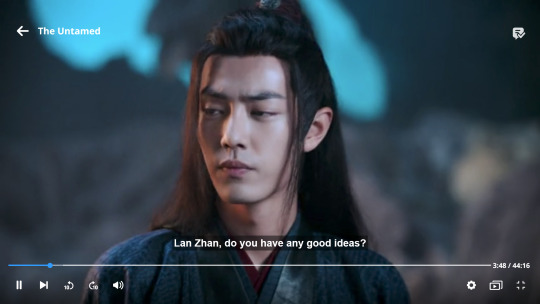

he asks this question way later in eps 20 and 43 or something and each time lwj is like 'we just gotta rush them' king of rigid problem-solving and only having one solution to any problem <3


threatening jc with lwj is kind of funny but on a rewatch it's like. ah
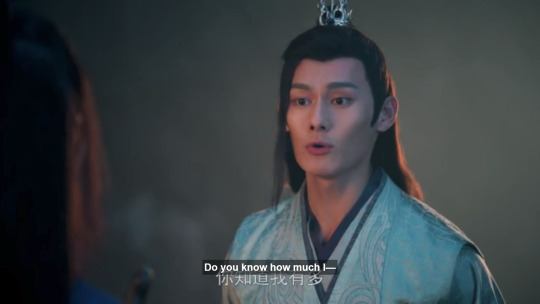
credit where it is due. jc almost expressed concern here for wwx

wwx defending lwj for zero reason and then turning and giving him such a sweet smile. bud you are so far gone <3
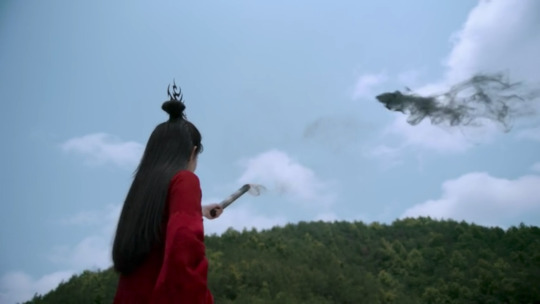
NOW IT'S DAYTIME?? not even dawn but BROAD daylight. mama mia
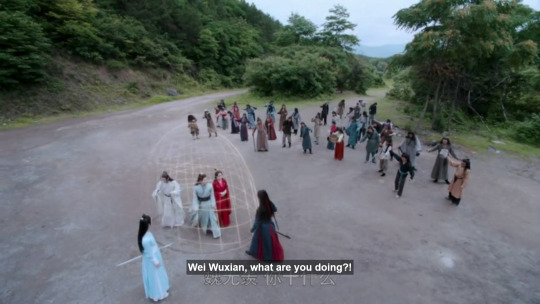
yeah, I feel like putting the zombied people in the cage would have been safer than putting the healthy ones in

IS HE. HMM
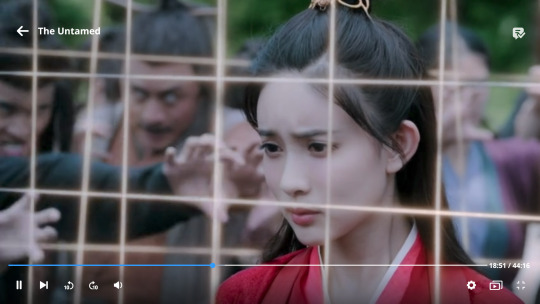
god this is so sad. look how miserable wq looks to see her popo like this
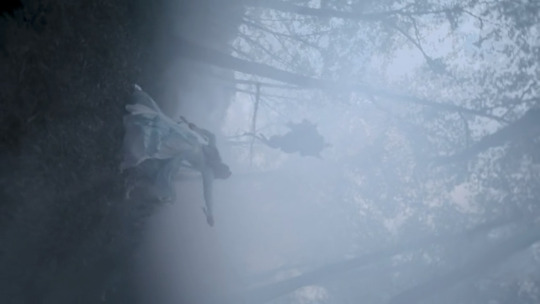
I don't like any of the surreal, drawn-out, misty sequences interspersed with fight scenes. I mean the waterborne abyss. I mean this forest fight. I mean a chunk of yi city. I mean the maze forest. I just hate the hazy atmosphere and there's usually no good character moments and there's a ton of worldbuilding magic that I can't follow very well and don't rly care for
this fight isn't bad tho! there's some fun banter and some cool angles, like the one above
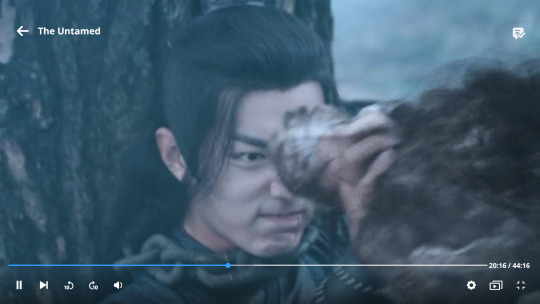
ANOTHER ATTEMPT AT STRANGLING WWX. WHEN WILL HE CATCH A BREAK. this is the first of...four? jc, wrh, and jgy way later...let wwx breathe 2k23

also this is a VERY funny thing to worry about. lwj is very good at going Heady Empty (meditation) but wwx found it challenging due to having so many thoughts
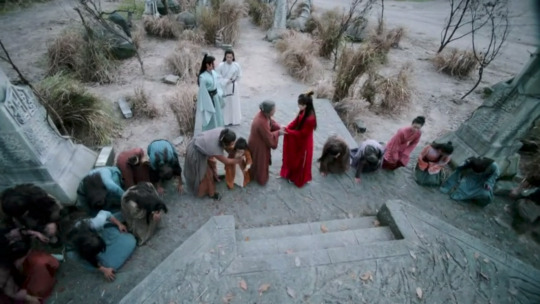
I SEE BABY A-YUAN!!!!!!!!!!! HELLO!!!!!!!!
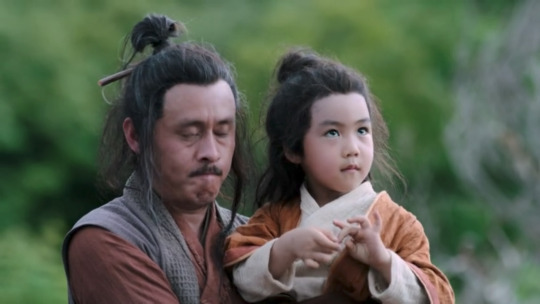
as much as I complain about him as a character I was THRILLED to see this little guy. I LOVE baby a-yuan and I think he's just precious. his survival was one of the things I needed to be spoiled for in order to watch the show without significant distress
though given the timeline this can't be a-yuan...he'd be way too old by the time the post-sunshot timeline rolls around. that's at least two years later. so I guess this is his older sister who looks the same as him. god but that's a cute little actor. love him and his big chubby cheeks and his little fingers and his baby wig

GREAT choice for little wn and wq too. they look just like their adult versions. actually I think the casting for all the kids versions of the adult characters was perfect except for a-yuan doesn't look a great deal like lsz imo

HA. wrh may be power-hungry and getting more unhinged by the day with the magic of the yin iron but he's still a more savvy political actor than his stupid fucking son. 'of course wen qing is going to intervene if you mess with her family, you fuckhead' lmao

SUCH a pretty shot I love how saturated the colors are for their outfits and headpieces
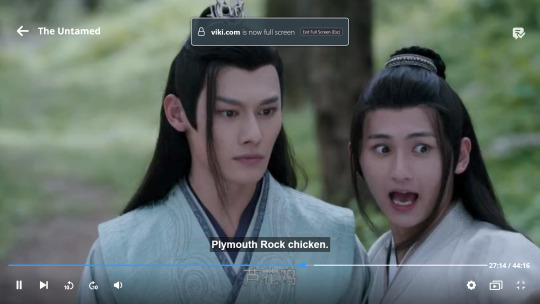

literally such a fucking funny scene. well-dressed young nobles hunting in the woods for a chicken. and wwx being so clever and getting wq alone so he and lwj can question her in private. curious how quick he was to cut nhs and jc out. nhs isn't from either of their sects, but jc should theoretically be trustworthy. except! wwx doesn't trust him. hmmm. even this early, he and lwj act as a unit. lwj's entirely given up trying to go it alone and now they work together nearly seamlessly

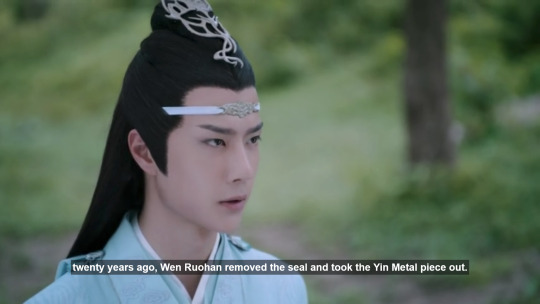
literally seconds apart. I fucking give up. and I don't think it's the translations because this has been a consistent issue in all the versions I've watched. it's 10! wq and wn are clearly around the age of the others so it's not 20

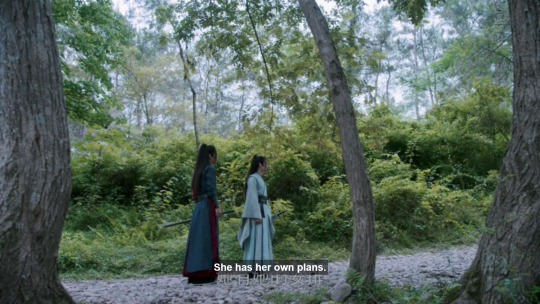
remember that post that's like 'jc: lady wen may I rub thine shoulders? massage your feet? feed you grapes? vs. wwx and wq doing a six-step handshake and laughing together' that NAILED it. jc trying to be attentive and gentlemanly bc he views her as a Woman and he's trying to fulfill the role he understands to be expected of him, as a man, in society ( to Intervene and Protect). meanwhile wwx views her as an independent actor in this shitty situation they're in. dgmw wwx is also sexist but he treats women more like human people than jc does, esp wq. he also thinks out of the box and isn't afraid to challenge social norms, unlike jc who's guided by social expectations because his parents haven't given him strong positive role modeling and he doesn't have strong instincts on how to behave outside of what he's been taught by society in general
but like I said. still sexist. it's not like being a creative and original thinker can save him from Living In A Society
lwj is very polite to wq, as he appears to be to all women, but I don't think he'd get close with any women because he doesn't get close with anyone at all. also I don't think he meets many women so he doesn't have much interaction with them outside of professional and impersonal settings so they've been at an arm's length from him since he mama died
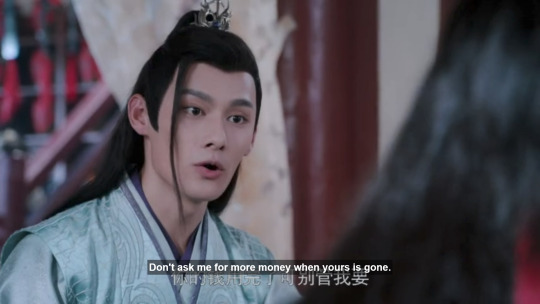
jc is consistently so unpleasant to wwx. like would it kill you to be supportive of your brother when he's trying to solve a mystery. for ONCE
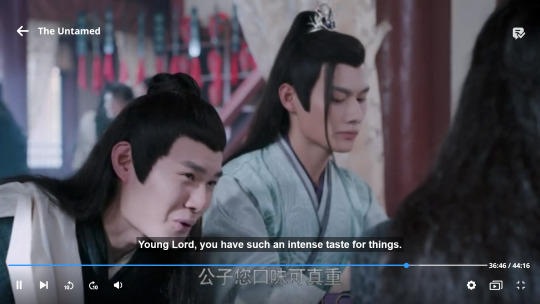
I like this waiter <3
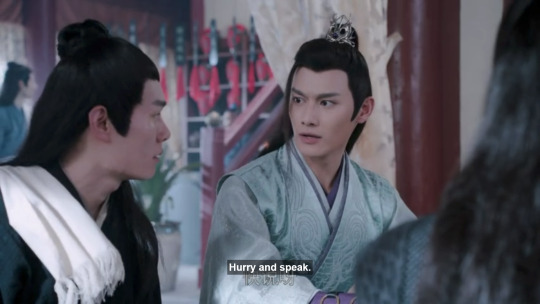
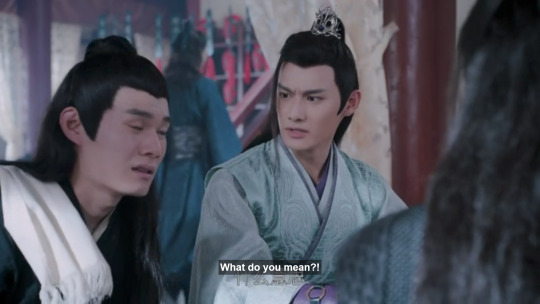
be nice to the waiter my GOD jc. chill out. he's just telling a story

ohhh cinematic parallels to post-sunshot hmm 👀
overall the yin iron plot is overly complex, kind of silly, and imo feels extraneous, and I can def tell why novel fans dislike it. but it did give the boys and girl some quality time together and an excuse for exposition/backstory development and really, that's all the purpose it needed to serve before its bigger role later. now if only jyl was on more of these trips :( I miss my girl. I love wq but jyl is probably my favorite female character
personal highlights
wwx's cute little smile directed at lwj for no other reason than that he likes him
wwx finding it hard to concentrate in the woods because he just has too many thoughts, which he interprets are being so so smart (and he IS I love you wei wuxian)
nhs and jc going chicken-hunting in the woods
BABY A-YUAN DEBUT!!!!!
2 notes
·
View notes
Text
"Moana" (2016)
I've written many, many words over the course of this project. Probably too many words! But while I've been slow to pick up the pace on watching the movies during the past couple years (life is busy, OK?), I've almost always been quick to put digital pen to paper after I've actually taken the time to put them on. The process of retaining information and fresh thoughts typically works best that way.
"Moana," however, was an outlier. As I sit here now, it has been almost two months since we watched it. As always, part of the difficulty was finding time, but on this occasion, I had a little bit of writer's block. The reason? I love "Moana" so much that it's hard to adequately express it. I like plenty of movies, but it's unusual for me to have such an overwhelmingly strong and positive reaction. I might be brief, but I am going to try.
"Moana" doesn't waste any time. It grabs you mere seconds after the Disney production card ends, with a striking sequence explaining the backstory of Te Fiti, Maui, and Te Kā, concluding with the introduction of the island and our main characters. It does a remarkably efficient job of setting up, well, just about everything in this movie, and it instantly draws you to Tala, the narrator of this prologue as well as Moana's grandmother.

This is a brilliant setup considering how important Tala is to kicking off the plot of "Moana" itself. Our title character, of course, has her song about "wanting adventure in the great wide somewhere," as Belle would say, and make no mistake: "How Far I'll Go" is an A+. It's not hard to understand why Moana is so driven to explore while still wanting to live up to expectations as the heir-in-waiting to lead the village one day. Further, it's not hard to understand why she has such a strong bond with her grandma. John Musker and Ron Clements of "Beauty and the Beast," "Little Mermaid," and "Aladdin" fame directed "Moana" and it shows.
The relationship is obviously special within the movie, and I'm also not going to act like I'm an unbiased observer here. Tala is very different from my own grandmothers in her own way, but that kind of pure connection of love and trust across generations? Naturally, I relate to that. I would not be who I am today without Grandma Mearns, whose love of singing and cooking was dwarfed only by her only love of family, and Grandma Robinson (Grandmar), who lived just a town over and was there for just about everything that my sister and I did. She stepped up in a truly immeasurable way as we grew up without my dad, and she never gave a second thought to any of it. In short, grandma stories have a very high probability of getting to me, hence the difficulty in putting all my "Moana" thoughts all into words!
"Moana" has even more going for it. The Lin-Manuel Miranda/Opetaia Foa'i/Mark Mancina soundtrack is full of hits, it's really cool to see the stories of Te Fiti and Te Kā develop over the course of the movie, and I don't think I could have imagined liking The Rock as Maui as much as I do. On Maui in particular, it's a great role that allows The Rock to act as the wild card who can generously be described as skeptical of a mortal, and yet soon grow to consider her a friend. And Maui is far from a flawless character in his own right, with his arrogance gradually skewered until he can be worthy of his hook's full powers again.
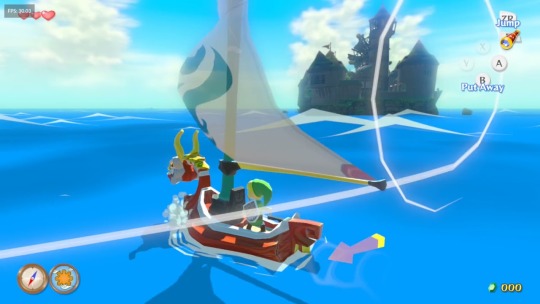
I'd also be remiss if I didn't mention that my love for "The Legend of Zelda: The Wind Waker" plays a significant role in my fondness for "Moana." I don't play video games even remotely as much as I did when I was a teenager. As I got more and more into baseball, that left less time for solo gaming, aside from multiplayer ones like the ones in the "Smash Bros." and "Mario Kart" franchises. I think "Wind Waker" might have been the last video game that brought me all the way down the rabbit hole. The adventure was as great as any Zelda title, and I'll never forget the incredible feeling of sailing around the islands of flooded Hyrule on the King of Red Lions or its moving conclusion. The parallels are obvious to Moana and Maui's journey around these Polynesian islands, and the story even includes an underwater realm to briefly explore, too. The endings are all tied up in embracing the role of explorers as well!
I think I've gushed enough. "Moana" forever. It is one of the best Disney films that I will ever see.
Best song: "How Far I'll Go"
Updated ranking
1. “Beauty and the Beast” (review)
2. "Moana"
3. “The Lion King” (review)
4. “The Little Mermaid” (review)
5. “Cinderella” (review)
6. “Mulan” (review)
7. “Tangled” (review)
8. “Wreck-It Ralph” (review)
9. “Frozen” (review)
10. “Sleeping Beauty” (review)
11. "Big Hero 6" (review)
12. “Snow White and the Seven Dwarfs” (review)
13. “Aladdin” (review)
14. “The Emperor’s New Groove” (review)
15. “One Hundred and One Dalmatians” (review)
16. “The Jungle Book” (review)
17. “Lilo & Stitch” (review)
18. “The Great Mouse Detective” (review)
19. “The Hunchback of Notre Dame” (review)
20. “Fantasia” (review)
21. “The Rescuers Down Under” (review)
22. “Tarzan” (review)
23. “The Princess and the Frog” (review)
24. “The Many Adventures of Winnie the Pooh” (review)
25. “Alice in Wonderland” (review)
26. “Lady and the Tramp” (review)
27. “Pinocchio” (review)
28. "Zootopia" (review)
29. “Robin Hood” (review)
30. “Oliver & Company” (review)
31. “Hercules” (review)
32. “Pocahontas” (review)
33. “The Rescuers” (review)
34. “The Adventures of Ichabod and Mr. Toad” (review)
35. “Bambi” (review)
36. “Peter Pan” (review)
37. “The Aristocats” (review)
38. “Fantasia 2000″ (review)
39. “Dumbo” (review)
40. “Bolt” (review)
41. “Meet the Robinsons” (review)
42. “Treasure Planet” (review)
43. “Chicken Little” (review)
44. “Fun and Fancy Free” (review)
45. “The Fox and the Hound” (review)
46. “The Sword in the Stone” (review)
47. “Atlantis: The Lost Empire” (review)
48. “The Three Caballeros” (review)
49. “Make Mine Music” (review)
50. “Brother Bear” (review)
51. “Winnie the Pooh” (review)
52. “Dinosaur” (review)
53. “The Black Cauldron” (review)
54. “Saludos Amigos” (review)
55. “Melody Time” (review)
56. “Home on the Range” (review)
1 note
·
View note
Text
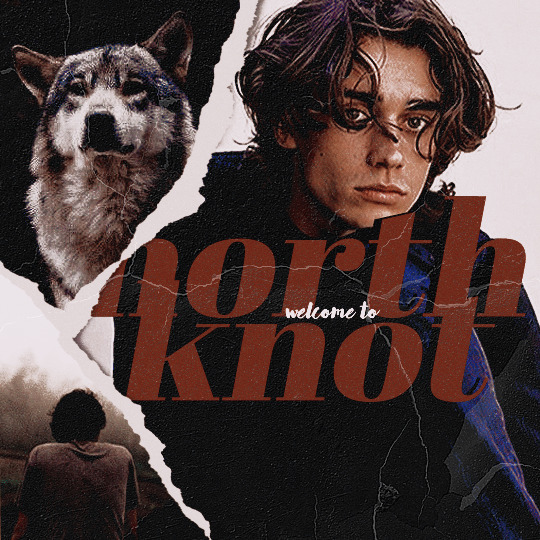
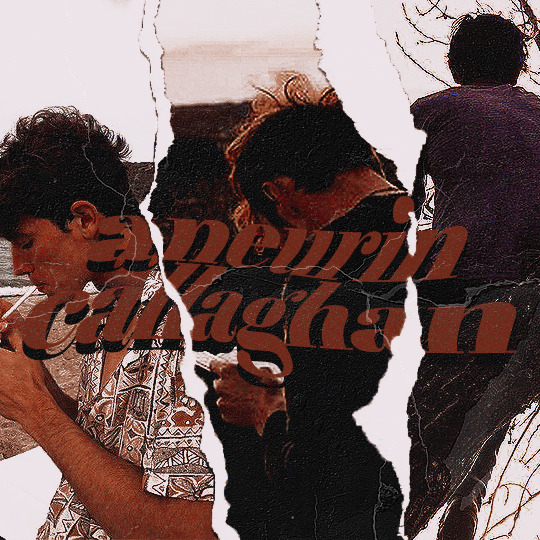
Since birth, Aneurin felt overshadowed by his older sister, Orlaith, who seemed to be the golden child. This dynamic proved challenging for Aneurin. Their family lived in Ireland until Orlaith was nine, deepening the divide. Aneurin, born three years later, faced a significant twelve-year age gap. This played a role in amplifying the sense of living in his sister's shadow.
The family dynamic was further complicated by their mother and grandfather's alpha status. In Northknot, Orlaith was groomed for alpha leadership, leaving Aneurin, the second-born, without the same opportunity. In result, he found himself on a path with no encouragement or acknowledgment, grappling with his identity within familial and pack expectations.
The parents had old-fashioned views and judged quickly without taking the time to understand. Aneurin felt like the odd one out, not fitting into the strict expectations their parents had. Especially because Orlaith went through life so easily; handed everything on a silver platter. Aneurin chose to keep his own thoughts. He'd learn to keep his own secrets too while still attempting to figure out how to navigate life. It didn't help that Aneurin sensed his difference from what was expected and he silently acknowledged his bisexuality, but kept it hidden while under his parents' roof.
The dynamics shifted when Orlaith was revealed to be gay, and that she had tried to suppress it until now. Although this resounded with him, it boggled his mind because: how could the golden child have a single flaw? This revelation shook Aneurin's perception of his sister. Encouraged by her honesty, he began exploring his own suppressed urges more, but still vowing to keep concealed from his parents. When Orlaith was disowned because of this, his parents redirected their strict expectations onto Aneurin, and he retreated into himself to weather the storm; no longer aspiring to their expectations, but instead feeling the urge to run.
Aneurin still maintained a distance from Orlaith, but things began to change after high school graduation. Moving out of the family home allowed him the freedom to think independently. This newfound autonomy prompted Aneurin to reach out to Orlaith, gradually bridging the gap. The effort brought them a bit closer. Reconnecting also meant meeting her fiancée, Elsa, and he found himself strangely comforted by her. His anxiety lessened, perhaps due to her sunny disposition that lifted his spirits. Elsa, engaged to his older sister, began treating Aneurin like a brother, creating a sense of being seen and understood that he had longed for. Despite the warmth, Aneurin still grappled with understanding Orlaith's choices, as the childhood trauma made it a learning process, but one he had slowly been putting more effort into lately.
Aneurin found a community of fellow wolves, including Molly, Laurel, Lachlan, and Astrid. Their household thrives on communication often expressed through gossip sessions on their expansive porch. During this time, the alpha status of the Moon Valley pack shifted to Orlaith and she claimed Laurel Parks, one of Aneurin's roommates, as her beta. While such a development might have angered Aneurin in his more immature years, he now understands this as it was always to be his sister's destiny. Considering all Orlaith has endured with their parents, Aneurin believes she is well-suited for the position and graciously accepts his place under her leadership in the pack.
In his early twenties, Aneurin connected with McKenna, a fellow werewolf from a different pack. Their passionate relationship endured for a few years, but Kenna's avoidant tendencies led to challenges. Navigating moody phases, Aneurin eventually felt the relationship became a burden. Around this time he had been hired as a park ranger and, with this new job, he prioritized his well-being, and ended things with McKenna; leading to a messy breakup which he at the time believed was best for both of them.
1 note
·
View note
Text
ok organized my thoughts and reread some bits so this is the better worded long post where i complain abt why novel 6 and novel 7 rubbed me the wrong way, but specifically in regards to how it handled shintaro as a Main Character
firstly the 180 from kano's hatred towards shintaro to a current admiration is very jarring. it feels very rushed, and its very weird how kano practically has 0 lingering resentment towards him. like just two days ago he was psychologically torturing shintaro, and now he thinks of him like this?


^all of this is kano's gay ass pov regarding shintaro btw
like i completely understand now why people ship kanoshin now bc this 100% reads like a kid crushing on their older sibling's friend. it might just be really strange localization, but with the lack of fan translations for this novel, this is all i can go off from. but it honestly feels so bizarre and like, not in a funnily comforting way but like... a strange misogynistic way?! but ill get to that in a second.
anyways i understand that kano just had the biggest breakdown of his life in the ending of novel 5, and his facade essentially broke apart entirely. and now without the need to put up a front, kano is able to recognize how much shintaro has changed from the guy from two years ago who would turn away from everything in front of him. but despite that rationalization, its still an overall pretty weird dynamic bc well..... what connects these two individuals is a currently deceased ayano, but i feel like she doesnt play a significant enough role in their assessments of one another.
and this is what i mean by the fact that this kanoshin dynamic feels strangely misogynistic. if shintaro's feelings towards kano was like, "i owe it to you to get your sister back, because it was my arrogance in the past that led her to not confide in me", then that wouldve been fine, and would have also been what i expected. but instead it feels more like a "hey, youre not that bad of a guy, shintaro!" "haha you too kano! guffaw guffaw", like.. what?
but to get to the crux of it, what bothers me the most abt their dynamic is that kano (and the rest of the dan) is now suddenly relying on shintaro. like all of a sudden he's being given rein to create a gameplan for them to survive the summer. like what? this is what i mean by shintaro's Main Character Complex, where hes placed into this type of position seemingly just bc he is the Main Character of the story.
i have many issues with the fact that shintaro was the main planner for this infiltration scheme. i think it was a big mistake that only a few members worked on it, cuz something this important shouldve involved the whole group's input, so its off-putting that it didnt. hibiya apparently played a big role, but this was only mentioned in passing by kano, instead of actually being shown. maybe the final novel might show a more comprehensive picture of this plan being put together by the whole group, and if it does, ill be happy to eat my words.
but not just that, but also how extremely similar this plan is to the one that momo devised against the terrorists in novel 1. both of them hinged themselves on the same trick, with kido appearing out of thin air with mary by her side. but momo devised her plan in a much more stressful setting, in a hostage situation with only a cellphone, with way less members at her disposal and an even lesser understanding of everyone's powers. and yet momo is not shown to have put in any input in this new plan, and the similarities and her clever ideas from the first plan are not acknowledged at all, like??? despite momo being shown to be just as capable as shintaro, if not even more so, it feels like she got pushed to the side so shintaro could have more time Being The Main Character. not to mention that im also iffy with the fact that shintaro spent more time around kids her age than momo herself did, with momo instead running around with hibiya since novel 4?!
so instead of the concoction of the final climatic infiltration plan being a group effort, and rather than having momo play a bigger role which she very much deserved to, shintaro is randomly made leader of this plot instead. bc he is the Main Character; which is then justified bc of the intellect he possesses, which honestly feels like something that was hamfisted into the narrative.
shintaro's intellect has a difficult time fitting into the story. this intellect is meant to be the reason why he was brazenly arrogant, this arrogance then being the flaw of his former self (did not reach out to ayano in a way that mattered), but the strength of his current self (the confidence and resourcefulness to create a climatic infiltration plan). but as i pointed out, it's manner of fitting itself into the current day plot, came at the expense of making kano bizarrely forgiving, and copying momo's brilliance but without any of the acknowledgement.
and this then relates itself to novel 6, which similarly threw itself out of balance in order to have a pretty big focus on harushin. like i understand the importance of harushin, its supposed to be a significant parallel to shintaro's strange friendship with konoha. i get that. but it feels a bit Too skewed to harushin? i can recognize the harutaka but like ive said before, considering that takane's whole novel practically revolved around haruka, with shinaya playing a very small part, it feels unbalanced when haruka's novel almost focuses more on shintaro than it does takane?? but ok thats not the main thing thats out of balance that really gripes me, whats really irritating me is this:
WHEREEEEE THE HELL IS SHINAYA. LIKE. THERES NO SHINAYA?? like it just feels so unbalanced?? we got our harutaka, cool (all of novel 2 + some of novel 6). a few helpings of ayataka along the way, nice (ayano encouraging takane to confess her feelings 2 years ago + ayano's email to ene). novel 6 coming in with some sweet hot harushin, and a little sprinkle of haruaya, very nice. now wheres the shinaya? where is it. huh. Where... THERE... IS NO.... SHINAYA..... they are like, completely and utterly subtextual. it is almost parody. LIKE...
like on one hand i understand that this could be interpreted as a cool, deliberate effect; shinaya's relationship haunts the story and they haunt one another, they talk about how their absence affect each other and all that, but we never actually see them interact meaningfully in the story.

^relevant remind blue lyrics pertaining to shinaya (IN MY GRANDIOSE AND CORRECT OPINION)
i get that, thats cool. its just.... UGHHH its just super extremely frustrating. EXTREMELY FRUSTRATING. shintaro literally does not let up at all like he is INCREDIBLY unlikeable when he is a student so ayano's crush on him just feels incredibly deranged. HE DIDNT EVEN REMEMBER HER BIRTHDAY????? like for me to be ok with this, all of this needs to be remorsefully acknowledged or something and we need to get our penultimate shinaya moment in the daze or SOMETHING cuz this is. getting.. ridiculous..
ok but basically to wrap it up, very annoying that shintaro spent more time with kido, mary, and kano than momo did; very annoying that hes being relied on for making a crucial gameplan that practically ripped momo's brilliant ideas off with no acknowledgement; and very annoying that he played a massive role in haruka's novel, while shinaya continues to be the most subtextual of subtexts. GRAHHH
#completely aware im being so mean to a character who gets their head ripped off but oh well.#shintaro has been pissing me off for 5+ years and he will continue to do so#kgprambling
1 note
·
View note
Text
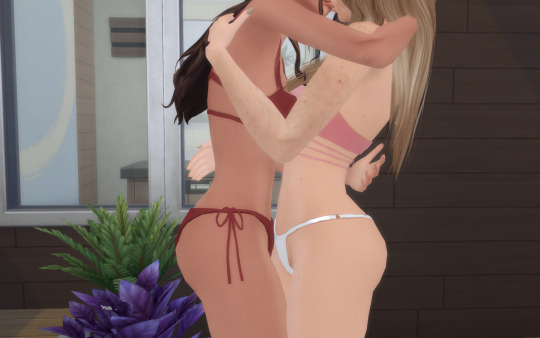


not long after the events from the last post, ani and calypso went out on a spa day together. from the hot springs to the massages the two both felt very nervous around the other. they were relaxing near the hot springs outside talking when ani pulled calypso into an embrace, expressing how lucky she feels to have someone who understands her so well. before she knew it, calypso was kissing ani. and ani was kissing her back. they both had been talking to their siblings for weeks and weeks at this point about their feelings for the other, and now it was finally happening.

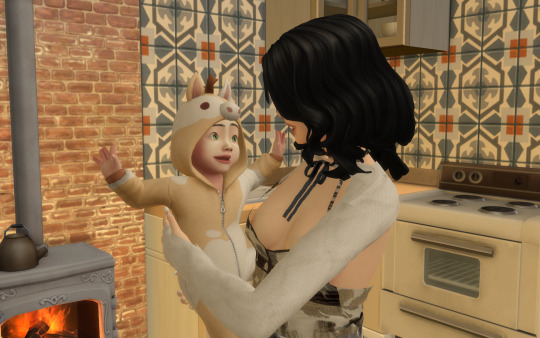
fast forward to 6 months later, orion and her girlfriend liliana are more than settled in their new apartment. orion and liliana both have tight schedules, orion working from 5-7am, then in school from 8-3 and then back home to watch august while liliana works until 12am. that being said, they have managed to keep up with bills and work on their tight but homey apartment. per her recommendation, one of liliana’s close friends from highschool, wolfgang, his girlfriend anaia, and her bestfriend anaya moved into the connected unit above their apartment. lily has managed to start recovering her mental health over the months, feeling connected to her new little family and hugely stepping up as a mother. orion, on the other hand has kept her dedication, but while lily is dedicated more to the family and her role as a mother than her relationship with orion, orion feels more dedication to her significant other than just their family. she wants to be in love, lily craves a family. that being said they still love each other and keep their relationship as intimate as possible with their schedules.

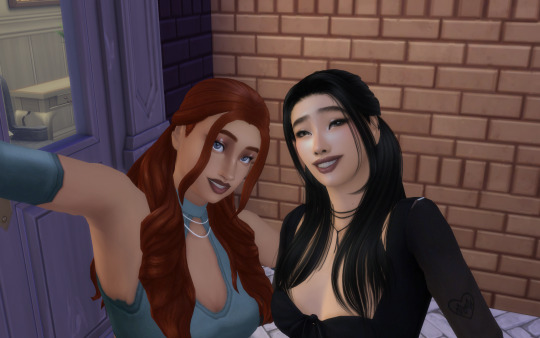
this fall, gaia started university! she decided to go to britechester to purse a language and literature degree. with her siblings now in completely different places (sulani, san myshuno, chestnut ridge) she felt it was her time to branch out and find her own place. she currently is in university housing and immediately connected with another student named maia. since she first moved in gaia and maia have been inseparable, and the two were constantly socializing and living the college life. parties every night, raves on weekends, hooking up and microwaveable meals. despite all the partying, she has been doing amazing with her schoolwork, scoring straight A’s. at this point, she gave birth to her and sydney’s baby, emilie, over 6 months ago. his family took her in per their agreement during her pregnancy but unlike sydney expected, gaia didn’t jump into motherhood. and he did NOT take it well when she told him she was moving to britechester. it felt like the end of their relationship, and also left their co-parenting with little to no explanation and frankly gaia wasn’t ready to give any, not even the day she left. she just wants to be able to have a career before giving her life to raising someone else, she still felt like a kid herself and deep down knows all the partying might be a distraction, one she took seriously too. especially the hookups.
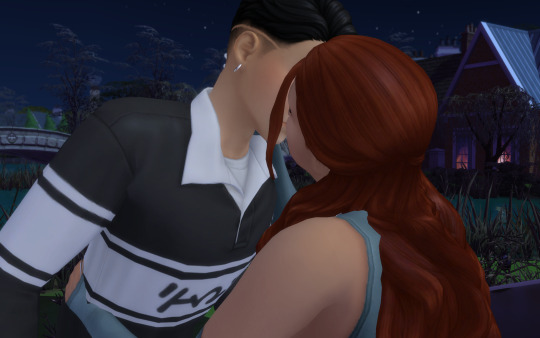

most were just casual one night stands with guys she knew but only saw at parties, except for these two. the first jeong seemed to fall for gaia almost immediately, despite knowing she only wanted to be casual. that quickly ended when he figured out just how much she did not want to commit. the second situationship was casual, yet more real than any other hookup which was ironic because it’s the one she’s least proud of. because it’s with pierce. her sister calypsos highschool close friend. she knows he had feelings for her back then, and she knows nothing happened with them and she’s with anastasia now, but still. she doesn’t know how her sister would feel. honestly, she’s just hoping it won’t be a “thing” and nothing will come of any of it.
#sims#sims 4#sims 4 cc#sims 4 custom content#sims 4 gameplay#sims 4 legacy#sims 4 mods#sims 4 simblr
1 note
·
View note
Text
Conventions of Fantasy Monarchs, Queens, and the Subversion Thereof
I think a lot about Megan Whalen Turner’s use of monarchy in her novels and how that compares to royalty as presented in children’s fantasy fiction (as well as adult fantasy fiction, although I think there has been a strong turn away from rulers as absolute moral arbiters in the past twenty-five years, maybe, in favour of portrayals that are not necessarily more nuanced or realistic but are certainly more corrupt and far from divine) and Turner as a feminist writer and how these two aspects of her writing are interlinked. The nature of her approach to her Queen’s Thief series, however, requires a finer focus to begin from the wide view. While other authors world build with brick and mortar, Turner’s books create their world through origami. Each book is a separate piece and is folded into the next.
In "The Thief", Turner starts by establishing the three kingdoms of the Little Peninsula: Sounis, Eddis, Attolia. King, Queen, Queen. Although “The Thief” is wholly Gen’s story, the King of Sounis appearing briefly at the beginning, the Queens of Attolia and Eddis appearing at the end, they are established as the powers that be, the decision makers, the three figures trying to maintain their country and their identity in balance with the martial and economic pressures from all out sides. We know little about any of the monarchs, beyond that Sounis is older and Eddis and Attolia are both young. That the young women are queens, not princesses, is immediately a quiet triumph, an eyeshiver of subverting the unquestioned status quo (you think now, as an adult, of all the uninterrogated eternal princesses in your media, the young women without fathers or with fathers specifically deceased, and the refusal to permit their ascension to an adult title).
Indeed, in “The Thief” it is impossible to envision them as princesses for they are not given names. This is not an oversight on Turner’s part, not a diminishment of their personhood or, at least, not a diminishment of personhood that is not considered part of the parcel of governance. The three monarchs are frequently referred to simply by the name of their country, even dispensing with King/Queen of [Country]. Of course this implies a degree of the individual as their country, their country as the embodiment of the individual, the placing of country before self which, in and of itself, calls on the typical mythos found coupled with a hereditary monarchy. But it also shapes the reader’s understanding of the dynamic between the three monarchs as equal. Queens instead of princesses is adult and the further step of country in lieu of title degenders them, allowing the reader to move beyond their expectations for these titles, these roles, based on previously consumed media or even an awareness of those monarchies which continue today.
It is easy to overlook these socially conditioned expectations; the woman who is a doctor but regularly addresses as “Ms.” without second thought versus the rudeness of anyone forgetting to address a man by his professional credentials. Turner lifts the reader away from expectations they may have for such archetypes as ‘king’ and ‘queen’ without any fanfare given for what she is doing.
Moving beyond the scope of the three monarchs, into the matter of Eddis and Attolia, the only female characters in "The Thief". When the women appear, Turner sets up a familiar feminine binary between the two queens. Eddis is ugly but kind. Attolia is beautiful but cruel. Subsequent books prevent this from being a reductive portrayal of women without invalidating the initial descriptors. Eddis is never described as particularly attractive, but in certain eyes she is beautiful, without it ever seeming like a case of a perceptive/quality man perceiving a non-traditional beauty. Her kindness is tempered, prevented from being a weakness as she makes hard, sometimes ruthless decisions in “The Queen of Attolia” and those decisions are not motivated by possessing greater kindness than Attolia. Instead, she is equal to Attolia in her fierce love and protection of her country and its people. Attolia, the supremely beautiful woman who is cruel, is not the beautiful but evil queen not because she is not truly cruel, but because her cruelness is an expression of her ruthlessness. It is not petty, this is not a governmental expression of a Madonna-Whore dichotomy. It is two women who are physically very different operating in very similar roles with identical goals.
The physical difference is not significant; it is fact.
The important difference, the real dichotomy, is not a question of which of these women is good and which is evil, which woman is ugly and which is beautiful, which woman is pure and which is corrupt. It is, in fact, not a reflection of the women at all, but a reflection of the society and men around them.
More than the other books, the complete understanding of how Turner has taken superficial expectations of kings and queens and the portrayal of two women who, by existing in the same text will always in some way be positioned against each other, is achieved in “The King of Attolia”. Not, as might initially be thought in “The Queen of Attolia” in which the Wicked Queen is given the history and explanation that Explains her; for once we understand why she is wicked, will her actions not seem more understandable and forgivable? Turner in fact says no, Attolia’s cruel acts remain cruel; the nightmare consequences of one particular action continue throughout the series in the form of literal nightmares. “The Queen of Attolia” also gives Attolia a stand-in for someone who appears to be filling the role the evil advisor who leads a good woman astray for his own power and gain in the form of Nahuseresh.
“The King of Attolia” has a protagonist who is not of the nobility and from his perspective the reader gains a deeper understanding for how Attolia the country has been affected by Attolia the queen, the disruption of tradition rippling out to a disruption in the land and its greater politics. Initially, Attolia is a queen governing without a king, contrary to tradition. As a result, Attolia is surrounded by men wishing to control the country through her, their own schemes kept at bay by Attolia making ruthless example of a few individuals and setting the survivors against each other, focusing their attentions on the immediate threat of their peers rather than the abstract threat of not having direct control of Attolia yet. There is a sense given that the history of Attolia’s reign has been a steady escalation of ruthlessness as the scheming and the impatience of her barons persists and under the distraction of infighting, spies, beheading, and torture she secures alternate sources of power which strengthens the tie of loyalty binding the lower classes to her by instituting policies of a non-traditional nature like: meritocracy in the military, terms of indentured servitude having finite limits, and financial compensation for people working for the crown.
Attolia’s political actions, once the reader comes to understand them, are actions which elevate the powerless in her country and in doing so it enables to cement her own power: the power of one who, traditionally, would also be powerless. That we only become aware of this, truly appreciating the impact of Attolia as queen, instead of just the difficulties and hardships personally suffered, from the point of view of an insignificant young soldier and guard, who both fears and is loyal to the queen, imbues this interpretation of Attolia as one of greater truth than what is shown in the previous books. The narrator of “The King of Attolia”, Costis has a simpler view of the matter, a man on the ground view. He has no experience of living under the rule of anyone but this queen. He is not affected by the wider inter-country politics, his position is one formed by experiencing Attolia’s rule. It does not read as propaganda or apologia for the actions of this woman which are influenced by our ancient history and the politics therein.
Turner’s series has now come to an end and the number of main female characters never expanded beyond Eddis and Attolia but, in a genre that frequently fails women, even now, Eddis and Attolia are nuanced characters, powerful characters stretching the expectations of their archetypes and growing beyond them. The way Turner constructs her novels builds slowly and subtly into works that are feminist, despite the predominance of male characters, and strong with class solidarity and an anti-monarchial bent, despite the majority of the protagonists and point of view characters being members of the nobility. The genre and demographic do not need to steer the politics and ideas of a narrative and, in turn, those aspects cannot be accurately represented by simple numbers and Megan Whalen Turner demonstrates this often overlooked truth with each of her books.
#this would just be a first draft in my uni days#sometimes you need to write until you find the point#the thief#the queen of atolia#the king of attolia#megan whalen turner#The Queen's Thief series#maybe i'll revise this later
215 notes
·
View notes
Note
Hey!! I was wondering if there’s a chance you could write Angst 4 with situation 4, with Wandaxfem!reader? Thank you so much anywho, I hope you have a great day
I absolutely can and you have yourself a great day too
"Wake up, dammit!"
Warnings: injury detail, near death, thoughts of death and me once again not really understanding how the human body works
2k words
[ masterlist ]
Buy me a coffee ☕
~ ~ ~ ~ ~
Being an Avenger required a lot of skills. Practical, physical and mental. You excelled at most of it, your life and that of your teams depended on it. But you had a tendency to let personal matters get in the way.
You weren't the only one guilty of that. You were pretty sure you could name a time it had happened to everyone on the team at some point.
But you and Wanda were much more liable to let that get in the way than the others. You had both made a couple of bad decisions in the past to protect one another's safety. It was hard to control. Your first instinct would always be to protect your girlfriend, as was hers for you.
That was when things were good between you. Things being bad was a new concept, especially the way it affected a mission.
"Clear on the fourth floor C corridor." Wanda said through the comms. You jaw clenched tightly as you withheld the urge to role your eyes.
"I just confirmed that, Maximoff." You said back. Wanda didn't respond to that, not that you expected her to.
You were both working your way up a building that Hydra agents were supposed to be hiding out in. Wanda took the left side and you took the right, there were times where you met in the middle with no exchange of words.
"Thanks anyway, Wanda." Natasha said in an attempt to ease the obvious tension.
You continued to up the stairs to the next floor and tried not to think about the fight you had had the night before. It was a blur the next day, the reason it all started was unknown to you both. You had both been in a bad mood and things had soon escalated...badly. You had both said hurtful things, things you wished you could take back more than anything. The pair of you had formed a habit of giving each other space before apologising, but you had been forced together on the spontaneous mission that has thrown you both off, even more so by the fight being the worst one you two had ever had in your four years of dating. You had no idea where you stood with Wanda.
When you arrived in the center of the fifth floor you and Wanda rounded opposite corners into the main hallway at the same time. You paused when you saw her, she did too.
You were about to say something to her. Something that wasn't bitter or tense. You had the sudden urge to spill out an apology but she spoke first.
"Clear on the fifth floor corridor A." She didn't spare you a second glance, continuing through the building. You nodded to no one and hastily blinked back the tear that threatened to spill.
Focus on the mission. Focus on the mission. Well you didn't have much luck doing that.
"Going on to the next floor." You said steadily. You hadn't done a proper sweep of the floor, but nothing in the building showed any signs of people being there and you needed to put more distance between yourself and Wanda.
You should have waited for her. You knew that. She knew that. No one protested.
As soon as you were on the second floor you let your guard down and leant against a wall to take a moment to gather your thoughts. That was a mistake. A significant one.
You weren't in the right head space for that mission. That become so much more apparent when you when two bullets hit you.
Whether it was shock, panic, being distracted or a most likely combination of all three, you barely registered the first bullet. You saw who shot it though. One single Hydra agent who made a break for the exit behind you.
Just as you raised your gun to fire the second bullet hit you and sent you falling to the ground. You registered him jumping over your immobile body towards the stairs but before he could put one foot on them red swirls surrounded his body and threw him against the wall, knocking him out cold.
Wanda emerged from the hallway and skidded slightly in panic as she stopped to turn your way. Her eyes widened at the sight of the blood covering your clothes and hands. You were shaking violently while trying to put pressure on the wounds, but you didn't know where exactly they were. You couldn't feel any pain. Just numbness. And that was terrifying.
"You...no, fuck. M-medical assistance- now. Y/n's...been shot." Wanda stammered in panic as she knelt down beside you.
Natasha was giving Wanda instructions but you weren't paying attention to anything except your girlfriend.
"It's...okay." You struggled to say. Your breathing was laboured and speaking was even harder. The distinct taste of blood was in your mouth but you had to ignore that.
"I shouldn't have let you come up here alone." Wanda scolded, tears trailing down her cheeks as she found the two wounds. She ripped some fabric from her shirt into two pieces and held them against your stomach.
"I probably...would have...bitten your head...of if...you tried to." You laughed, instantly regretting it as pain shot through you. The shock was wearing off and the pain was taking its place in the most unmerciful way.
Tears fell from your eyes and your head fell back against the hard ground as you gasped, struggling for air. Wanda moved behind you and placed your head in her lap while she continued to apply pressure.
"I'm sorry." Your voice broke as you spoke. "I'm... so sorry for...last night." Wanda instantly shushed you and shook her head. Her left hand stayed on your stomach and her right combed through your hair to calm you.
"We both said bad things."
"I didn't...mean it...any of it." You tried to lock eyes with Wanda through your tears.
"Neither did I, we'll talk about this when you're better." Wanda promised, nodding her head to assure herself that you would be fine.
But just as she said that it became increasingly difficult to stay conscious. It was as though there was something in the dark calling to you, urging you to let go. It would be so easy. There would be no pain. But Wanda wouldn't be there.
You put your hand weakly over hers, wanting her to be the only thing on your mind incase it was the last. The feel of her skin against your own, her soothing voice and the accent she tried to conceal but you loved, the way she cared for you like no one else ever had. The thought that you may never experience that again made your heart drop.
The shaking was getting worse and you felt so cold.
Go to the dark. Don't go to the dark. So easy. No Wanda...Wanda.
You couldn't help it. You couldn't stop it. It washed our you like a wave. The sounds around you became distant, as though everything was far away. You couldn't make out what Wanda was saying. She sounded desperate. You couldn't see her either. Everything was blurred. Then it was all gone.
*
The recurring beeping from the monitor was the only sound in the room. Wanda had always thought she would find them annoying, but the Sokovian never wanted to hear it stop. Not until you didn't need it anymore. Until she didn't need it.
It had been a week since you were shot. A week since she had seen your bright y/e/c eyes. The doctors were skeptical. Wanda vaguely remembered them talking to her about your injuries, the severity of them and how they would effect you if you woke up. Once you woke up. They said it was a slim chance.
Wanda sat curled up in the chair next to your bed watching you, wondering if it felt peaceful to be in that state. She wore your favourite hoodie and had a blanket from your shared bed over her, it was the only thing that brought her comfort.
"Wake up, y/n." She whispered, as though trying to secretly communicate with you. "Please." She raised her voice slightly, thinking it could make a difference. It didn't.
"Y/n." She leant forward in her chair and took both of your hands in her own. All she had been able to think about was your fight. It had been stupid, so so stupid. You hadn't fixed it, not properly. Wanda needed more than than the brief moments on the mission. She didn't get to apologise. She couldn't let you go before she got to apologise. She had done it over and over to your sleeping form. But it didn't count. She needed you to wake up. To look at her again. To smile. To speak. To go on another date. To share another kiss. To sleep in the same bed...to get married. There was so much left to do. Wanda wasn't prepared for it to be cut short. It wasn't fair.
"Y/n please wake up. I'm so sorry." She pleaded as she gripped your hands like a lifeline. Tears rolled down her cheeks as she pleaded over and over.
"Wake up, dammit!"
*
When your eyes finally flickered open you shut them again instantly. It was bright, far too bright. You gave a soft groan at that and tried to shield your face with your hand but found no energy to do so.
Your throat was dry and scratchy and your eyes were stinging from the exposure to the light.
You became aware of the beeping and glanced at the monitor as you tried to adjust to your surroundings, taking a for moments to remember how and why you were even in a hospital bed.
In the corner of your eye you saw movement on your left. You slowly turned your head in that direction and had your breath caught in your throat at the sight of your sleeping girlfriend. Was she still your girlfriend? Your heart dropped at the possibility that she might not be, but you hastily pushed it to the side and appreciated her company.
You had missed her. You had no idea how long you had been out. You had no memory of what it was like. All you knew was the familiar feeling of coming home deep in your chest.
Wanda's slim hand was resting on the bed next to yours and out of pure instinct you laced your fingers through her own, still unable to get over how perfectly they felt entwined together. Would she pull her hand away when she woke up? Would she shout at you more?
Fortunately you didn't have to wait long to find out. Wanda stirred from her uncomfortable looking position on the chair and blinked a few times before her eyes fell to your hands.
She furrowed her brows in confusion at the sight, not remembering putting them together but one look up told her all she needed to know.
"Y/n." She said as a sigh of relief, sitting up straight and gleaming at you.
"Wanda." You croaked with a weak but genuine smile. She picked up on that and with one flick of her tinted red wrist a small cup of water came floating towards you.
"Thank you." You said gratefully and took the cup with your free hand, wanting to hold Wanda's for as long as you could. You gulped the water down quickly and placed it on the bed side table before looking back at Wanda.
"You scared me." She admitted, concern prominent in her shimmering eyes.
"I'm sorry." She shook her head and was quick to speak.
"No, no more apologies from you. I'm sorry. For everything. I-" You cut her off by placing a finger to her lips with a smile.
"Stop."
"I really am though." You knew that, you could see it.
"I know you are." You said genuinely. "And I am too. I don't even know how it..." You trailed off as you opened and closed your mouth, not knowing what you were even trying to say. Wanda laughed and nodded, you had missed that sound so much.
"Are we...are we okay?" You asked timidly, fearing the response so much you couldn't look her in the eyes, only staring at your entwined hands.
Wanda lifted your chin with one of her fingers, wanting you to look at her as you spoke. Her warm smile greeted you like a treasured friend.
"We are. And I'm going to spend the rest of my life making it up to you."
"Well then that's going to get confusing really quickly because I'll be doing the exact same." You declared. Wanda laughed again and brought your hands up to her lips to place a soft kiss on them. A smile spread easily across your face at the gesture.
"Come here." You muttered as you moved over to the edge of the bed and pulled the duvet back for your girlfriend.
She eagerly accepted the offer and slipped in beside you, instantly wrapping her free arm around you to bring you close while her other still held your hand.
"I love you." She whispered as she kissed your forehead.
"I love you too." You smiled and held onto her loose clothing and...how the hell did you miss that? "Is that my hoodie?"
613 notes
·
View notes
Text
ns crystalized thoughts so far, spoilers beyond this point
I felt it was a bit rushed but i mostly really liked the different ways the ninja coped with nya's loss, the way it was different from s4 when they lost zane. I particularly enjoyed that jay was being a bit of a dick about the fact that he copes differently than everyone else and that his assumption that noone cared/ remembered besides him actually ticked kai off. I've been waiting for a kai vs jay fight forever and this one payed off
super loved how nya remembered and kept fighting to get back, also the dragon form is badass even if we aren't going to get it anymore after this
ASPHEERA yall dont understand how abnormal i am about her and how she came back. I love that she and wu had their petty contest moments, i love that lloyd kept his word to her despite it all. Most of all I just appreciate how much time was dedicated to her and the issue of breaking her out, and her characterization is just 👌
the fact that kai and jay were just smiling when they succeeded even as they were being put in jail because who fucking cares? they got nya back. its so :)
that being said, honestly I feel like the season got weaker in this second... fourth? half? whatever. It was a little frustrating to see the ninja, especially lloyd, so insistent that they were better than everyone else at the prison like. with the argument that ppl doing crime chose to be there, as if the ninja didn't just experience being strongarmed into breaking the law in order to save their friends. I dont expect cutting commentary on the prison industrial complex by ninjago or anything but it just kind of felt emotionally disconnected from everything we just experienced. I dont think they had to be nice but I just think lloyd shouldn't be mouthing off about displaying good behavior and crime being a choice when the last 2-3 eps were literally ABOUT that not being the case for the ninja
kai jumping across that gap with his fire powers was sick as hell tho ngl
I'm SO glad dareth and skylor have both returned and both seem to have a somewhat significant role this season. Especially dareth, I'm happy to see him here not just being made a laughing stock of
it was again, kind of rushed, but i appreciate nya Going Thru It, and her return to samurai x. also appreciate that pix was supportive even though she's taken the role at this point, they can share and the true samuraishipping can begin :)
I have mixed feelings on the sally ep and zane's arc. On one hand I like what they were going for, but I feel like some subtlety and interconnectedness with the rest of what was going on was lost. I didn't personally want to see zane having a breakdown or something after turning his emotions back on, but its frustrating that he turned it back on and didn't show any reaction of his grief returning, something like a bittersweet cry of relief would have been nice or something. Also sally was kind of treated a bit like a joke as well which sucked bc i liked her and her story :(.
sorry to fugidove fans, but I hate him. Maybe if he stopped being touchy-feely towards jay even after he set his boundaries multiple times I would have appreciated him more, but as is I was supposed to find that funny or something when it wasn't, and i hated it
oogh tho it picks up again with the mechanic stuff. Very cool to see him fight the ninja, I really liked the creativity of these sequences, and lloyd posing as him was funny as hell
my girl rumi is BACK hee hee hoo hoo, I saw it coming from a mile away but its fine because i like it when she exists and does her thing, and im just glad she didn't die that horrible death in s9 and that was the last we saw of her or anything
thats it, i might have more in-depth thoughts on these things later that i may or may not share, but these are it for now
17 notes
·
View notes
Note
give me the a brainworms i am deeply invested in this man
(0) (2) (3) (4)
okay first of all you asked for this. second of all if i am a little off track from the game that is explained by me just building thoughts like building blocks without looking back. third i was supposed to be studying for an exam but this counts as practice right? it's character analysis anyway lmao.
buckle the fuck up, my dearest anon, because I have sub headings.
1. A as the Player Character
Let me begin with why I am obsessed with this horrid little guy in the first place: he's a silent protagonist. I am always obsessed with protagonists. It's a law of nature. I love taking hollow characters and dissecting them for scraps. It's a long standing practice of mine.
Being a silent protagonist, A, as X, does not have a set personality. However, there are patterns. Firstly, as any semi-silent protagonist, A is a reactive character. He does not start incidents, he only responds to situations, presented by the Sephirah, as they arise. He does not actively seek out new information, merely going about the routine of expanding departments, but expresses curiosity when information is presented to him.
I'm aware fandom likes to characterize X and A differently, likely because they are initially presented as different characters. I, on the other hand, would like to pose the theory that they are more similar than expected.
I believe that A is also a reactive character, rather than active. Despite the fandom wiki describing him as stubborn, the goal A pursues with such fervor, the completion of the Seed of Light, is not actually a goal he set for himself. Carmen is the one who set this goal for him by leaving him her legacy.
Throughout the backstory we get relating to the Cogito Project, A is Carmen's assistant, whereas Carmen is the driving researcher. This is how many of the City's inhabitants seem to be; going with the flow of goals set for them by superiors. Yes I will get into his attachment to Carmen later.
The above is not to say A isn't stubborn. Once he has accepted a goal as his own, he will pursue it at all costs, as is obvious from any and all flashbacks leading to horrible deaths. But the point isn't his pursuit of the goal, but where that goal comes from. Even Lobcorp itself supports this, despite what Hokma may say; A as X follows the "simple" task of managing the Corp's day to day activities, and executes any mission given to him by the Sephirah. He outranks them, and doesn't actually need to do their missions, but does so anyway. Players are driven by the reward offered by those missions, of course, and A might be the same in that regard. Nonetheless, at no point in gameplay do you do anything somebody else hasn't told you to.
The overarching narrative of the Script would be the most obvious example. Every single person in the game follows the script, whether they know it or not.
Lastly on this note, a phrase we hear attributed to A, "Machines must behave as machines." Now, Angela may be attached to this phrase because it bears significance to herself as a machine, and informs most of A's unjust treatmeant of her. However, what if it doesn't just apply to machines? The phrase reads as such, "Everyone must act according to their own role."
2. A, Carmen, and the disease of the mind
So, A will at any cost pursue goals Carmen set for him. Question is, why? The obvious answer would be saying he's in love with her, which like, true. But also, how did Carmen come to be so precious to him?
Let us return to the comparison, "This is how many of the City's inhabitants seem to be." We don't really know why exactly most characters joined Carmen, excluding mainly Daniel and Benjamin. But this does not mean we can't have theories.
Carmen's ideal was curing the "disease of the mind." What is the disease? Complete hopelessness. The inability to form aspirations and dreams, to think of a better future. A is a very reactive character who does not set goals for himself. Therefore, I personally conclude, that initially, Carmen's ideology resonated with him because he could identify with the disease.
This is the point where I start rewatching Lobcorp story clips. Dear god.
So, by briefly binging day 27 onward, I've come up with lines that very much support this lil theory of mine:
First, from Carmen, a description of the disease, "People lock away their own potential."
Second, a line from Angela, after the memory synchronization, "You've locked yourself in this prison without bars."
Carmen describes A as humble, and Benjamin thinks he is warm. If I suppose A was one of the diseased initially, Carmen would be the catalyst for this change. Carmen was someone with big aspirations, with plans to heal what is wrong with the City, and it gave him hope. He was one of the diseased, but through time with Carmen, with that relentless optimistic spirit, he may have been cured, for a time. It's not a stretch to say that she was his light.
But lor shows us what happens when the seed of light sprouts wrong, doesn't it? It distorts. A grasped hope for the first time and then it is ruthlessly crushed. Carmen was everything. Yes, A is described as a jack-of-all-trades, as a genius in all pursuits he puts his mind to, but what does that matter in the face of someone who can unite people? Who can give them hope of a better world? Who can inspire them to actually use the talents they have?
And what kind of pressure is it to put the legacy of a messiah in the hands of the diseased?
3. A and the Perception Filter: A is weak to White damage
No, I am serious about that. He's extremely weak mentally. Obviously death of a loved one is a changing experience for absolutely anybody, but Carmen's death destroyed him.
Not only did he refuse to confide this grief to anyone and bottled it up, now everybody looked to him to lead the project, but he just isn't Carmen. He isn't an ambitious person, he doesn't have the same optimism, he can't bring people together, but people expected him to, and he failed. Hard.
While he was without a doubt talented in science, he was also just an average guy.
After her death, A grew to hate humans. He lost trust in them. He refused to confide in anyone, and be confided in by anyone. Thus, the team fell apart.
In both lobcorp and lor, we get interesting tidbits about precations taken to protect the manager.
Firstly, Lobcorp's perception filter. The cartoony art-style of the game is a result of the game being in first person. Through the eyes of the manager, everything is cartoony!
This is a measure undertaken to specifically protect the manager's psyche. Angela tells us that, before it was deployed, the manager would frequently go insane, one notable incident including the manager trying to hang himself. When we first hear this, the previous managers and X are still separate in our minds. However, they're all A! A went insane multiple times without it.
This is understandable, considering that employees also frequently go insane and try to kill both themselves and others. But they're there in action, confronting the Abnormalities directly. Just watching them made the manager go mad. They could not handle the responsibility for the employees' deaths.
In lor, Angela explains why she picked the Rabbit Team from R Corp as their main contractor instead of any other team. One team was simply too big for L Corp's narrow hallways, and the other team... dealt in psychic damage. It was simply too big of a risk for the manager. But the manager is always secure behind the cameras. Would that teams methods just be that brutal visually, or would their attacks have reached the manager?
Combined with his immense grief at all of his friends and coworkers dying in part because of him, A cannot bear to look at death.
4. A's greatest flaw: Avoidance
A common thread during Core Meltdown flashbacks: A refuses to look at suffering. He just can't. Whether it be looking away from Elijah writhing on the floor or hanging up on Daniel's panicked report of death.
This is actually the thing Angela takes the biggest issue with, and what hurt her most. A would never look at her, acknowledge her, and she did not understand why. But I think A did not refuse to look at her out of maliciousness. Rather, it was out of grief over Carmen. He could not look at her without being reminded of what he lost.
Angela's creation came about because A wanted someone to guide him, someone like Carmen. He threw himself into the project to the point it made Benjamin happy that A was passionate about anything again. But as soon as the project he distracted himself with is complete, he is filled with regret. Carmen cannot be replicated, and he breaks again.
Furthermore, tying this back to my first point about A being a reactive person, we see Angela take charge over A. She's the one recruiting employees and leading the business. It was likely a relief for him to be able to step down from the leading position.
But avoiding it made everything worse. He did not act when he saw Elijah's unchecked ambition, he did not act beyond a simple check at Gabriel's decay, he gave Giovanni the same hope he clung to to no avail, et cetera et cetera.
Avoiding his problems is making them worse and sending everything down the drain (including his psyche), so he deals with it the only way he knows how, avoiding them more!
Biggest example of A's big avoidance problem as his psyche crumbles: the memory wipe. A, in perhaps his one singular moment of acknowledging his emotions, recognizes that he is incapable of fulfilling the Script in his current state. His grief is just too much.
By erasing his own memory, he could start fresh without his grief, because he might've really killed himself otherwise. His suffering became bigger and bigger, and he coped by avoiding it.
The memory wipe allowed him to distangle his problems. Through his interactions with the Sephirah (which I will not individually detail for the sake of my sanity and because I dumped all this on a friend on discord already), he can deal with and actually process his issues one at a time.
As the motto describes, only by facing the fear can he build the future. Only by finally facing his grief and acknowleding it, seeing that the past cannot be changed and he has no choice to move forward, can he actually do so.
5. The Sephirah as ghosts
Lobotomy Corporation feels like a ghost story. I've touched upon this in my previous A post.
As you reach the Corp's lower levels, there are less Sephirah. First there are four. They act like normal employees, and do not breach into the story's underbelly until you reach their core supressions and the facade breaks. Second, counting Tiphereth as one, there are three. They still go about their duties, but they know what they are. Third, there are two, and the facade is gone. They know what they are, and they will tell you about the sins of the past.
And finally, you reach Keter, and there is only one.
This gradual decay of the facade is what really gets to me. I said that by interacting with the Sephirah, A deals with his issues one by one, but that's what the Sephirah are, in this case. Representations.
The people the Sephirah used to be are dead, and the Sephirah are their ghosts. The core supression involve putting these ghosts to rest. Doesn't it match the progression of a typical ghost story? Find the ghost, find what they used to be, and help them move on.
So, if everyone is a ghost, then A is alone.
But, behind the scenes, the Sephirah are still there. They are still people, and they have changed for the better, too. As always, A simply does not look.
(Does he even see the good others see in him? Does he look away from praise, too? Did he even realize Benjamin's admiration for him? Will we ever know?)
6. A's end.
A's progression of moving on would be fine and dandy if it did not end as thus: A does kill himself.
A sees himself beyond the point of no return. Everyone is dead. He is alone. Carmen is never coming back. He can't call it quits now, or else everything has been in vain. (Even if the last days show us a part of him wants to just quit, so badly.)
So, there's only one thing left to do: follow the Script to its ending. Fulfill Carmen's legacy at all costs. Death as the ultimate release.
This is the point where I admit I do not like the death as release trope. But the game does a good enough job as presenting it as the only option A had, or the only option he saw himself as having.
However, I've mentioned it before, I'll mention it again: A was not alone. Death was his release, but he left wreckage. In order to end his own suffering, he inflicted the same pain he went through on others.
Throughout the game, he moves on and pushes through. The ending shows that in reality... he didn't.
At least in lor the characters stick together and help each other heal.
This has been most of my thoughts on A, amounting to my longest analysis post ever, having taken me approximately two and a half hours to complete, and clocking in at 2337 words including up to this paragraph.
Thank you anon for giving me the incentive to verbalize all of this, so I can finally be at ease having inflicted my thoughts on everybody else.
#Feli gets asked#lobotomy corporation#ayin#library of ruina#also i saw apparently another fandom besides lc uses the ayin tag which is just fun to watch honestly#many characters could rival this word vomit probably but as i said i already inflicted most of my thoughts abt netz on my good pal borgor#thank you borgor for dragging me back into projmoon stuff. also curse you terribly#long post#Feli speaks
46 notes
·
View notes
Text
I found my way home
Summary: After Spencer tells Hotch about his recent autism diagnosis, he expects that to be the end of it. Somehow, though, it keeps coming up, and Hotch keeps proving himself to be the best father figure he could have asked for.
Tags: autistic spencer, protective hotch, hurt/comfort, fluff, paternal hotch, team as family
TW: mentions of ableism, one small instance of ableism & homophobia
Pairing: Gen
Word Count: 4.1k
Masterlist // Read on AO3
This was borne from my conversations with @criminalmindsvibez about the lack of autistic spencer fics and her amazing headcanons. While I'm not autistic, Emily is, and helped me to portray Spencer's autism as accurately as possible. That said, please feel free to correct me on anything I got wrong :)
Spencer had made an effort to get into work even earlier than usual today. He’d ridden the metro through the city, dipping his hand into his messenger bag every few minutes to compulsively check that the slim letter he’d received in the post the other day is still in the front pocket where he’d safely placed it that morning. He brushes his fingers over the paper once more as he enters the near-empty bullpen, the letter cool from the winter air.
It’s still so surreal to him that this is where he works. After years of dreaming of working for the FBI he’s finally here, and even though it’s been his place of work for almost two months now, he’s still not used to it. The warm offices are a nice reprieve from the wintry December wind, and he can feel himself relaxing as he heads to his desk. Leaving his coat and messenger bag on his chair, he pulls the letter out of the front pocket and runs his index finger along the edge. He finds himself biting his bottom lip as he tries to work up the courage to go and see Hotch.
Sucking in a deep breath, he marches determinedly up to Hotch’s office, entering as soon as his knocks are answered.
“Reid,” Hotch says pleasantly as he takes a seat opposite his desk, realising belatedly that he probably should have waited until he was invited. “You’re in early. What can I do for you?”
Nervously, Spencer hands him the letter he’d couriered across the city so carefully. He’d taken care to open it neatly with his letter opener but the return address on the back has been stamped at a crooked angle, and it bothers him every time he notices it. He can’t stop looking at it now as he taps his fingers anxiously against his leg in the pattern of the Fibonacci sequence, a safe and familiar reassurance played out by his nervous fingers. He watches apprehensively as Hotch pulls the letter out of the envelope, unfolding it and skimming his eyes down the page, taking in the news Spencer’s been so anxious to share with him.
Diagnosis: Asperger’s Syndrome
God, it had been a long process. He’d had to seek out a doctor in DC who diagnosed adults, paid for all the consultations and diagnostics himself — his insurance certainly wouldn’t cover it, not that he’d feel comfortable using his cushy FBI insurance for something so personal anyway — and the whole process had taken far longer than he’d expected. Finally, though, the envelope had arrived in the mail, and he officially had a diagnosis.
Of course, he’d had his suspicions for years, especially after one of his professors during his second PhD had casually asked whether he’d ever been tested, planting a seed in his brain that led to many late nights in the library, reading all the literature available to him. It’s why he’d found it strange that it had felt so validating to finally receive that letter in the post. But it had.
The label made sense, and now that he had a diagnosis from a medical professional he felt comfortable to share it with others; he’d been far too paranoid about being questioned, not being believed or lectured about the evils of self-diagnosis no matter how he was confident in himself. He didn’t tend to be an insecure or self-conscious person, but after years of bullying and trauma surrounding what he now knew for sure to be his autistic traits, he couldn’t help but feel almost protective of his affirming label.
Now though, it’s an irrefutable statement. Dr Spencer Reid has autism, and the first person he wants to tell is Hotch.
“I had no idea you were getting tested, Reid,” Hotch says, a hint of surprise bleeding into his voice. “Is there any specific reason you wanted to share this with me?”
“Well… I felt like someone on the team should know,” Spencer starts carefully, afraid to give too much of himself away, “and I thought that someone in a leadership position was the best option. Gideon has never been very… supportive of my autistic traits or behaviour, so I thought that you— that you would be the best option.” He feels awkward, fidgeting in his chair as he watches Hotch’s serious face and kind eyes absorb the information.
“That trust in me means a lot, Reid,” he says, a rare smile making its way onto his face. In that moment, Spencer knows he made the right decision. “How can I make things easier for you? Is there anything you need me to be doing differently?”
“Uh—” He hadn’t really been anticipating that question and it catches him off guard: he’d predicted a quick nod of acknowledgement, a request to photocopy the letter so it can be put on file followed by a swift dismissal, but the letter is now sitting on his side of the desk: clearly, Hotch intends on keeping this between them. This is far from what he expected.
“Why don’t you start by telling me about autism and how it might affect your work?” Hotch corrects himself, recognising quickly Spencer’s need for specifics. “I’ll admit I don’t know much beyond some probably rather unhelpful stereotypes.”
Spencer nods. He can answer that question. “As everyone knows I often go off on tangents,” he begins, “and that’s because my special interests — or hyperfixations — often coincide with our work, so I know a lot about the topics we’re investigating. If I do that, just redirect me to the case and I’ll be fine. It’s also really hard for me to have to present myself in a certain way all the time. Vocal stims and gestures are the most satisfying to me but I often have to mask them, which I’ve never been very good at anyway, and it’s fairly exhausting. That’s why I often excuse myself; I go to the bathroom or a secluded hallway and stim on my own. My doctor also told me I tend to overcompensate in social situations and over-perform emotion. Those are the basics, I guess, but it’s a very complex disorder and since it makes up me as a human being, I can’t exactly explain all of it in one conversation.”
“No, that’s fine, Reid, you’ve given me a good picture of what to expect, thank you.” Hotch smiles at him, fondness in the crinkles around his eyes and the softness invading his usually stern expression. “First of all, you never have to feel like you need to excuse yourself to stim. Do you think it would be helpful if we told the rest of the team so they know what to expect? I’m assuming vocal stims are saying certain words or making sounds…?”
Spencer nods.
“Okay, so if you needed to do that we could just continue the conversation while you get it out of your system. Gestures certainly wouldn’t be a problem. How do you feel about that?”
He hadn’t really considered telling the rest of the team but it seemed sort of intimidating, like he’d be opening a vulnerable side of himself to people he didn’t even know that well. On the other hand, they’d all been so understanding of his quirks and odd behaviour so far without even knowing the reason behind it. He’d never once been made to feel the way he used to at school, forced to either pretend to be someone else completely or be isolated and ostracised.
He settles for, “I’ll think about it.”
“That’s fine. There’s no pressure,” Hotch assures him. “I’m very happy you told me, Reid. I hope you know you can come and talk to me about anything, whether it’s about this or something completely different.”
Spencer leaves his office with the letter back in his hands, no notes or copies having been made, feeling almost elated. Never in a million years would he have expected that to go so well.
⭐️
He doesn’t really expect it to come up again. He’d told Hotch so that he could understand him a bit better, and also because Hotch had quickly assumed a protective, almost paternal role in his life and he wanted to share the piece of news with him whether he was leading his department or not. That was supposed to be it, though, he didn't think anything would materially change, especially since he decided not to tell the team about the diagnosis just yet.
But almost immediately after he’d told Hotch his diagnosis, his rambles began to be gently redirected back to the case, sometimes without him even noticing. He wasn’t rudely cut off by anyone anymore, Hotch always steering him back on course before anyone else can jump in and hurt Spencer’s feelings. It’s so… kind that it almost feels foreign, and he finds himself gravitating towards the older man more and more, sitting next to him on every jet journey and staying glued to his side during cases.
His newfound protectiveness over Spencer is only demonstrated more clearly a few months after their conversation in Hotch’s office when they’re on their way to New Mexico for a case. The second he spots that the murder victims had all been found with different Fitzgerald quotes scrawled on sheets of paper found in their own personal notebooks, ripped out and left for investigating officers to find, he launches into an info-dump to rival info-dumps.
He can’t help that literature is a special interest of his, made all the more intense by the fond childhood memories of reading to his mother in her bed. Fitzgerald had been her favourite author of the Modern Era, and he’d spent hours analysing significant passages in his novels as a child, so he starts explaining the literary merit of each of the quotes left at the crime scenes.
Apparently, he doesn’t hear the first two times Hotch tries to direct him back on topic, but he hears it when Gideon shouts, “Spencer! Long and unnecessary tangents are not conducive to actually solving these cases. Get back on topic. Now.” He’s loud enough to briefly knock him back several decades to memories of his father screaming at his mother’s schizophrenic babbling, when she’d become convinced that the villains of her favourite novels were trying to break into the house.
Spencer stops mid-sentence and stares at Gideon, who is staring right back. Everyone’s watching the two awkwardly, but the short moment of silence is quickly broken by Hotch. “There is absolutely no need to be that rude, Jason,” he says disapprovingly, while he lays a hand on Spencer’s arm in a light, absent-minded sort of touch. “Reid may have been off-topic but he deserves respect just like everyone else on this team. Nobody needs to be shouted at like that.” He directs his attention back to Spencer. “Why don’t you tell us how those Fitzgerald quotes could help us solve the case, Reid?”
He gives him an encouraging look, and when he looks around the jet, everyone else is, too. Carefully, he starts speaking again, a little afraid of being cut off again, but after a few sentences of relevant explanation he regains his momentum. It’s more than a little vindicating when it’s his ‘unnecessary tangent’ that ends up being the key to cracking the case.
⭐️
Soon after Hotch’s split from Haley, he approaches Spencer one evening when they’re the only two left at the office with a dinner invitation. Within the hour, they walk into a nice, low-key Italian place in the city and take a seat in the far corner of the restaurant.
“Is everything okay?” Spencer asks a little uncertainly, confused as to why his boss is suddenly taking him for dinner.
“I had this idea almost as soon as you told me about your autism,” Hotch explains, knowing by now that preambles and niceties only frustrate Spencer instead of setting him at ease. “I wanted to take you out for dinner every week to try and give you a space to ramble about all your special interests and not feel like you have to mask around everyone. But when I was with Haley, all my personal time was obviously spent with her and Jack. Now, I have the time to dedicate to you and all the incredible knowledge you’re hoarding in that brain of yours.”
“Really?” Spencer asks excitedly. The idea of uninhibited space to talk about the recent knowledge he’s acquired and not have to feel insecure or worry about performing social skills he doesn’t see the point of is everything he’s ever wished for, and something so wonderful being provided by Hotch only makes it better.
“Really.”
Spencer wastes no time. He dives right in. “I was just watching a documentary the other day about volcanoes and their ability to trigger lightning storms with their voltage,” he begins. “Basically, magma rises toward the volcano’s surface, its water rapidly turns to vapor, which shatters the molten rock into tiny particles and creates charged particles. When the ash plume erupts into the atmosphere, the densely packed particles collide, driven by momentum. Friction then affects their electrons, becoming electrically charged. Positively and negatively charged electrons separate in the ash plume which creates a charge imbalance that builds an electric charge strong enough to trigger a lightning storm.”
“That’s incredible.”
“I know,” Spencer says excitedly. “If the ash plume rises high enough in the atmosphere ice forms, and when ice, hail, and supercooled liquid droplets collide, the rates of lightning explode, it’s crazy.”
They’re briefly interrupted by a waitress taking their orders, but as soon as she leaves, Hotch gets him to jump back in. “What about that lecture you attended last week… the literature of 18th Century England or something?”
“19th Century English Lit, yeah!” He’s so eager to finally share this with somebody who will genuinely listen to him, and he can’t help it when his arms start to flap excitedly. Remembering where he is, he doesn’t try to mask it, pin his arms to his sides and simply deal with and suppress the innate urge to stim, he lets his body do what it wants to. Instead of eliciting a strange, sideways look, Hotch just smiles fondly.
“The lecturer had this fascinating theory on Dickens. I’ve always seen him as a pretty straight forward author of picaresque fiction, obviously combined with facets of melodrama. And it’s common knowledge that he was inspired by the novel of sensibility, of course. But I’d never thought about the stylistic and lexical choices in his works beyond standard analysis, and this lecturer went on a deep dive into his use of collocation and it opened my eyes…”
He spends the whole evening stimming to his heart’s content while detailing every current interest of his to Hotch, who simply listened intently while eating his meal slowly, dragging out the meal for as long as Spencer needed. “Let me give you a lift home,” Hotch insists after footing the bill, leading him out into the warm evening air.
“Oh, I don’t mind taking the metro,” he replies truthfully.
“I know. But it would make me feel better to drop you home safely. It’s late and seeing you into your apartment building would give me peace of mind.”
“Sure,” Spencer agrees happily, he’s still buzzing from such a nice evening and the least he can do for Hotch is let him rest easy tonight, so he climbs into the passenger side of his car. A few minutes into the car ride home, he realises he should probably actually verbalise just how much he enjoyed dinner. “Thank you, Hotch. I don’t think anybody’s ever done something so nice for me before.”
“Don’t mention it, Spencer,” Hotch replies, smiling even though he doesn’t take his eyes off the road. Spencer very much likes it when Hotch uses his first name, and he’d been doing it all evening. He doesn’t really understand why it feels so nice, just that it makes him feel… special, maybe.
“Don’t mention it, Spencer,” he repeats, before freezing as he realises what he’s said. He’s got so used to not masking all evening, he’s not in the right rhythm and mindset to suppress the urge to repeat Hotch’s words. He’s been so nice the whole evening, the last thing Spencer wants is for Hotch to think he’s mocking him.
“Hey, it’s okay,” Hotch reassures him, tapping his arm lightly as he smiles encouragingly.
“Don’t mention it, Spencer,” he says again, repeating it a few times in relief before the itch is satisfied. He really does have the best boss/friend in the whole world. There’s no doubt about that.
⭐️
Rossi’s initial reaction to Spencer had admittedly been a bit rocky, and having Hotch undeniably on his side was the only thing that made those first few months bearable. He never let them go off on their own; never put Spencer in a position where he’d have to be alone with him. Gradually, though, Rossi adjusted to his quirks and he became almost as protective of Spencer as Hotch.
That doesn’t bode well for the local sheriff when they’re on a case in North Carolina. He’s been prickly since they arrived, being as stubborn and uncooperative as possible, slowing down their progress on actually solving the case, and Spencer’s noticed him being a little extra rude to him in particular. It doesn’t massively bother him — it’s not exactly like someone’s aversion to him is a novel concept — but he can feel some sort of tension coming from the others. It happens a lot more now that they know about his autism and are more aware of themselves and others.
He tries to ignore it the best he can; he puts his head down and focuses on the geographical profile, going wherever he’s sent. Besides, the sooner they solve this case the sooner they can get out of North Carolina and back to DC. On their third day on the case, he’s working quietly in their designated corner of the police department alongside Hotch and Rossi while the others are out investigating in various different places. It’s a nice environment, and even though both men are his superiors, he feels more relaxed in their company than in anybody else’s.
It’s a relatively pleasant morning — considering the whole trying to catch a brutal serial killer thing — until they need to ask the sheriff a question. He saunters over, a tense and angry expression on his face, and Spencer can’t help but feel a little off, the confusing tension in the air that Spencer can’t quite identify making him anxious in his inability to properly decipher it. “Gentlemen,” he says, already frustrated. Spencer suspects it’s a pride thing; not many police departments like being shown up enough to have the FBI called in.
Eager to know the answer to their question, Spencer’s the one to jump in and ask. “Sheriff, we were just wondering whether the town gets much traffic from the local university or—”
He’s cut off by the sneering, towering man. “I’m not taking any questions from your kind,” he says aggressively.
“I’m sorry?” Spencer squeaks as Rossi and Hotch both prepare to say something in response.
The sheriff cuts them off before they can get their likely diplomatic and calming words out. “Homo retards aren’t welcome around here.”
“Hey!” Rossi shouts as he leaps out of the chair, grabbing him by the collar as he’s helped by the element of surprise. “You don’t fucking talk to Spencer like that, you hear me? Weak, cowardly men like you—”
“Dave,” Hotch says placatingly, putting a hand on his shoulder and diffusing the situation. “Listen, Sheriff, we are only here to help you. But if you can’t respect my agents then we’re going to have a problem. Either you’re civil to Dr Reid, or I’m reporting you to the NC Sheriff’s Association. You hear me?”
The sheriff’s pride is clearly wounded, but he at least nods before giving them all a scornful look and walking away.
“We didn’t even get to ask the question,” Spencer says anxiously, suddenly feeling out of his depth, like he can’t quite get enough air.
“Dave, try and get an answer,” Hotch directs, taking charge of the situation. “Spencer, come with me.” He takes him into a secluded hallway for a little privacy, sitting him down on the cool linoleum before sinking down next to him. “You’re okay.”
“You’re okay, you’re okay,” Spencer whispers over and over to himself as he rocks backwards and forwards, trying desperately to self-soothe.
“Do you want me to touch you?” Hotch asks. He’s been in enough of these situations with Spencer to know he’s usually in two very different headspaces: he either longingly craves the grounding touch of a hug or a hand on his back, or he needs complete space. He’s also learned that asking outright is the only way to get an direct answer.
“Yes,” Spencer replies, before repeating it over and over again as he’s wrapped up in Hotch’s arms, head pressed against his chest, his hand pressing gently against the back of Spencer’s head. He starts to calm down as he manages to breathe to the heat of Hotch’s calm, steady heartbeat, the comforting touch of someone he trusts with his life also helping to bring him back down to earth. A good ten minutes after the altercation with the sheriff, he’s feeling much better and brings his head out of it’s safe cocoon between Hotch’s chest and hand.
“Come on,” Hotch says kindly. “Let’s get back to the case, yeah? You can just sit and work quietly until you’re ready to hold a proper conversation again. How does that sound?”
Spencer nods tiredly, knowing that work will perk him back up again, and being surrounded by his team will make him feel safe, asshole sheriff or not.
⭐️
Over the years Hotch helps him through any hurdles that come his way, learning the exact nuances of Spencer’s characteristics and requirements, making sure to accommodate him in every way possible.
He brings an extra, super-soft sweater in his go-bag in case Spencer ever forgets his and needs something gentle on his skin but tight enough to make him feel secure. He buys him stimming toys, dropping them on Spencer’s desk before he even arrives at work and lets him use his office whenever the lights and noise of the bullpen get too much, drawing the blinds and giving him the space he needs. Rossi doesn’t even question it anymore when Hotch shows up with a stack of paperwork and moves into his office for the morning.
It wasn’t until Hotch made a concerted effort to make his life easier that Spencer realised how hard it had been fighting through life on his own. So when he realises Hotch’s birthday is coming up, he decides he wants to show his gratitude. It’s never been easy for him to express emotions, especially since he’s never really found it rude when people don’t thank him, but he knows that for most neurotypical people, appreciation is important.
So he talks it over with Derek and on Hotch’s birthday, he comes into work to see Spencer waiting in his office with balloons, a cake, a card, and a present. He’d spent hours trying to find the right words to explain how he feels, to find the right words to show Hotch just how much everything he’s done for him means, but eventually he’d settled on something simple:
Caroline B Cooney wrote: “I found my family. I found the right thing to do. I found my way home.”
I found all of these things when I joined the BAU, but more specifically when I walked into your office, hands shaking, clasping a letter I’d been waiting for all my life. Thank you.
Hotch reads it with tears in his eyes before taking in the cake, a classic birthday cake Spencer had bought at the store, the words “Happy Birthday Dad” written in blue icing. He didn’t really understand why the cake had stood out to him, or why he associated the word ‘dad’ with someone who wasn’t related to him at all, but he’d trusted his gut and with Derek’s cheerleading, he’d bought it.
“Oh, Spencer,” Hotch says tearfully. “Can I hug you?”
Feeling only mildly uncomfortable at the visible display of emotion Spencer doesn’t know what to do with, he nods and steps into Hotch’s comforting embrace. “This means the world to me,” Hotch murmurs quietly as he stands, hugging Spencer for as long as the younger man can stand it.
Spencer’s still not completely sure why he’s managed to make him so emotional, but at least he can trust that it’s a good thing, that Hotch is happy and pleased and reassured. And if he can make him feel even a smidgen as happy as Hotch has made Spencer over the years, well. He’ll consider his long and boring trip into the city to buy the cake, present and card worth it.
Quick Note: Spencer is diagnosed with Asperger’s because that part of the fic is set in 2005. These days he would be diagnosed with Autism Spectrum Disorder (ASD)
taglist: @criminalmindsvibez @strippersenseii
#criminal minds#criminal minds writing#criminal minds fic#spencer reid#aaron hotchner#hotch & spencer#spencer#hotch#my writing#autistic spencer reid#autistic spencer#dad hotch
303 notes
·
View notes